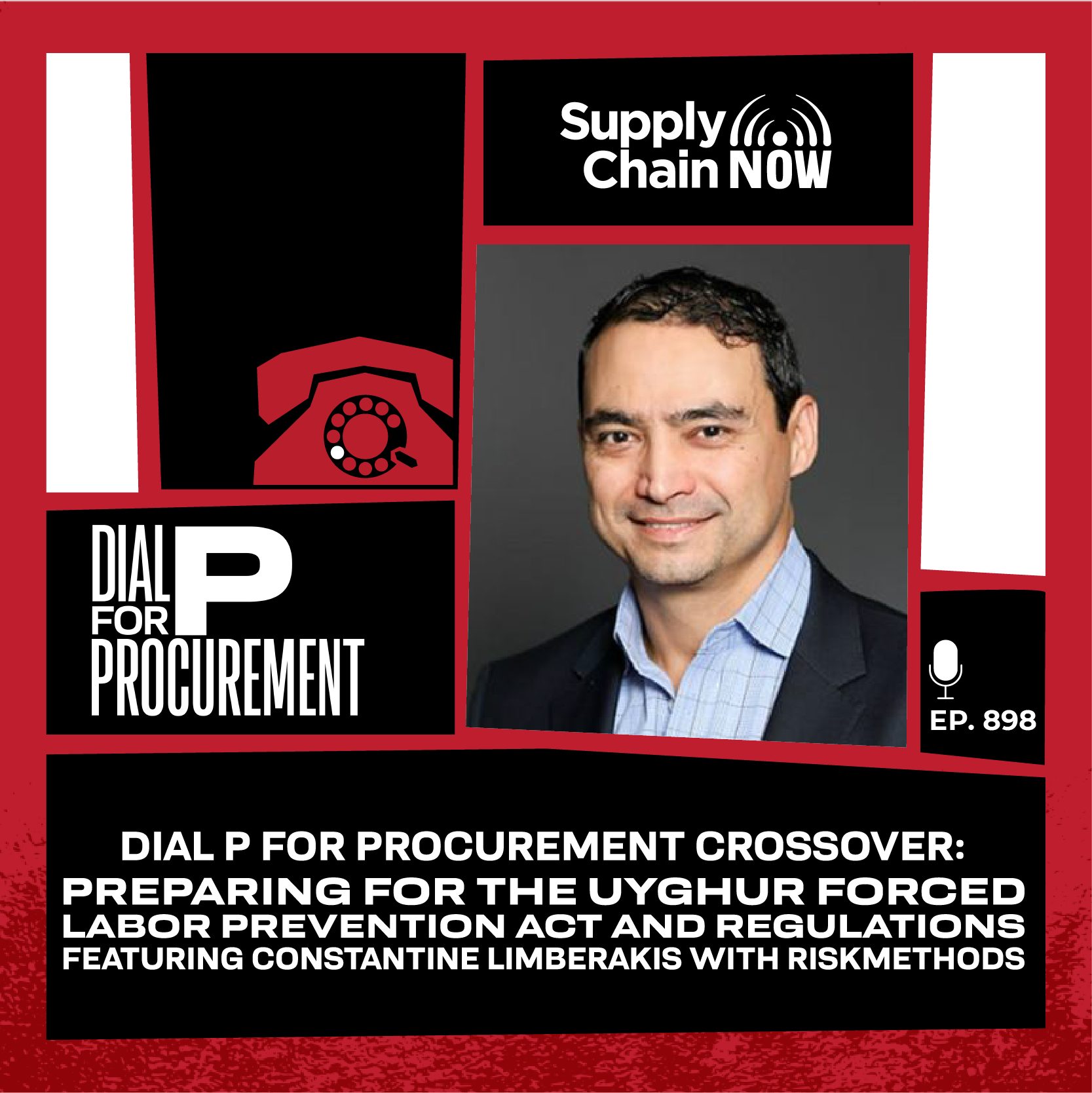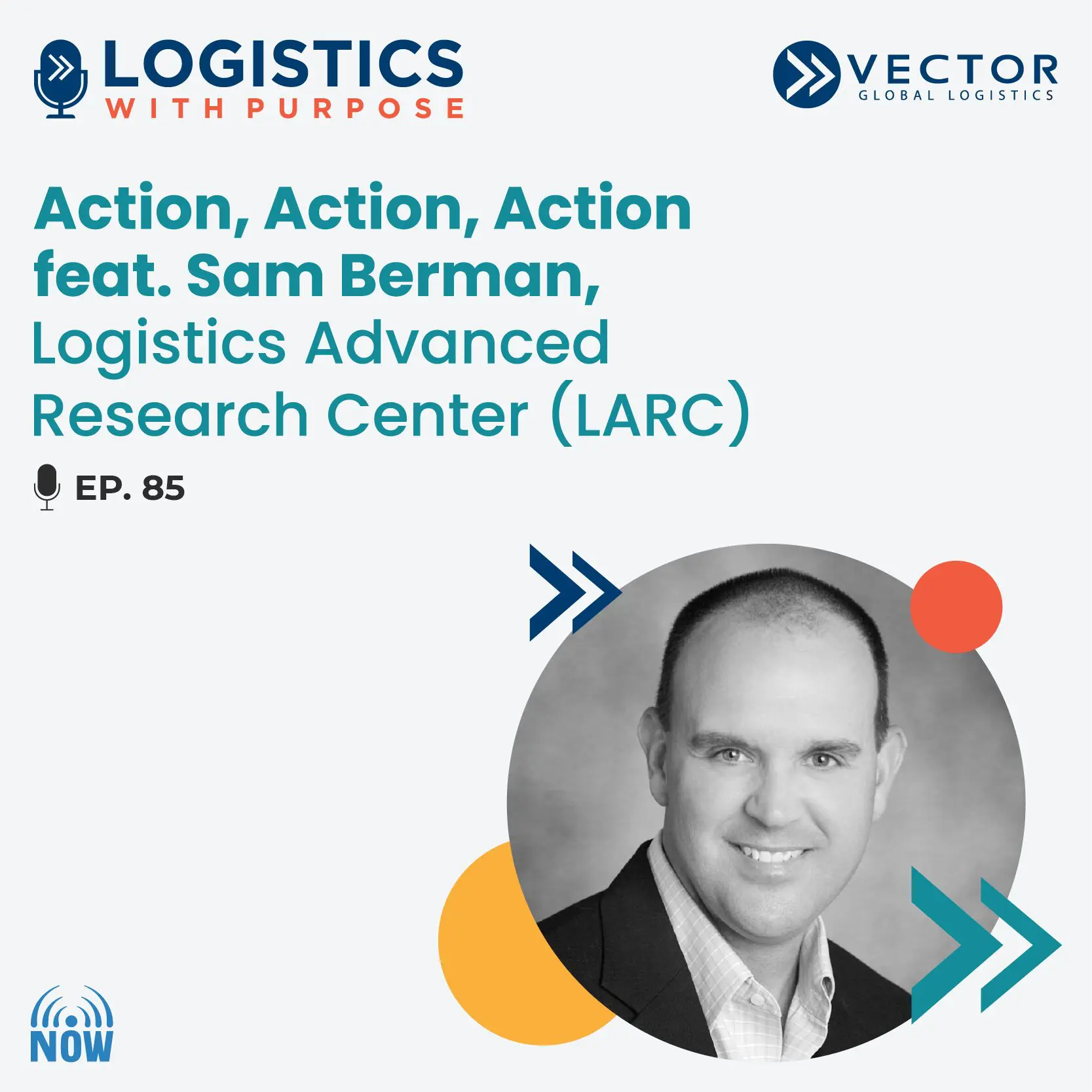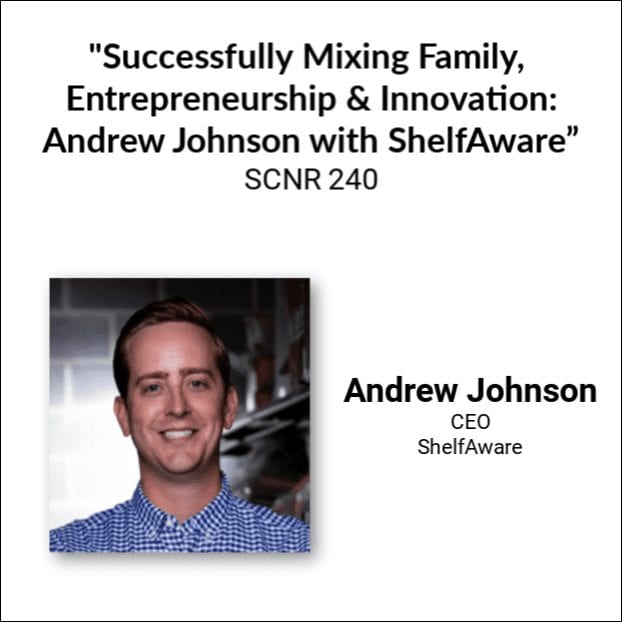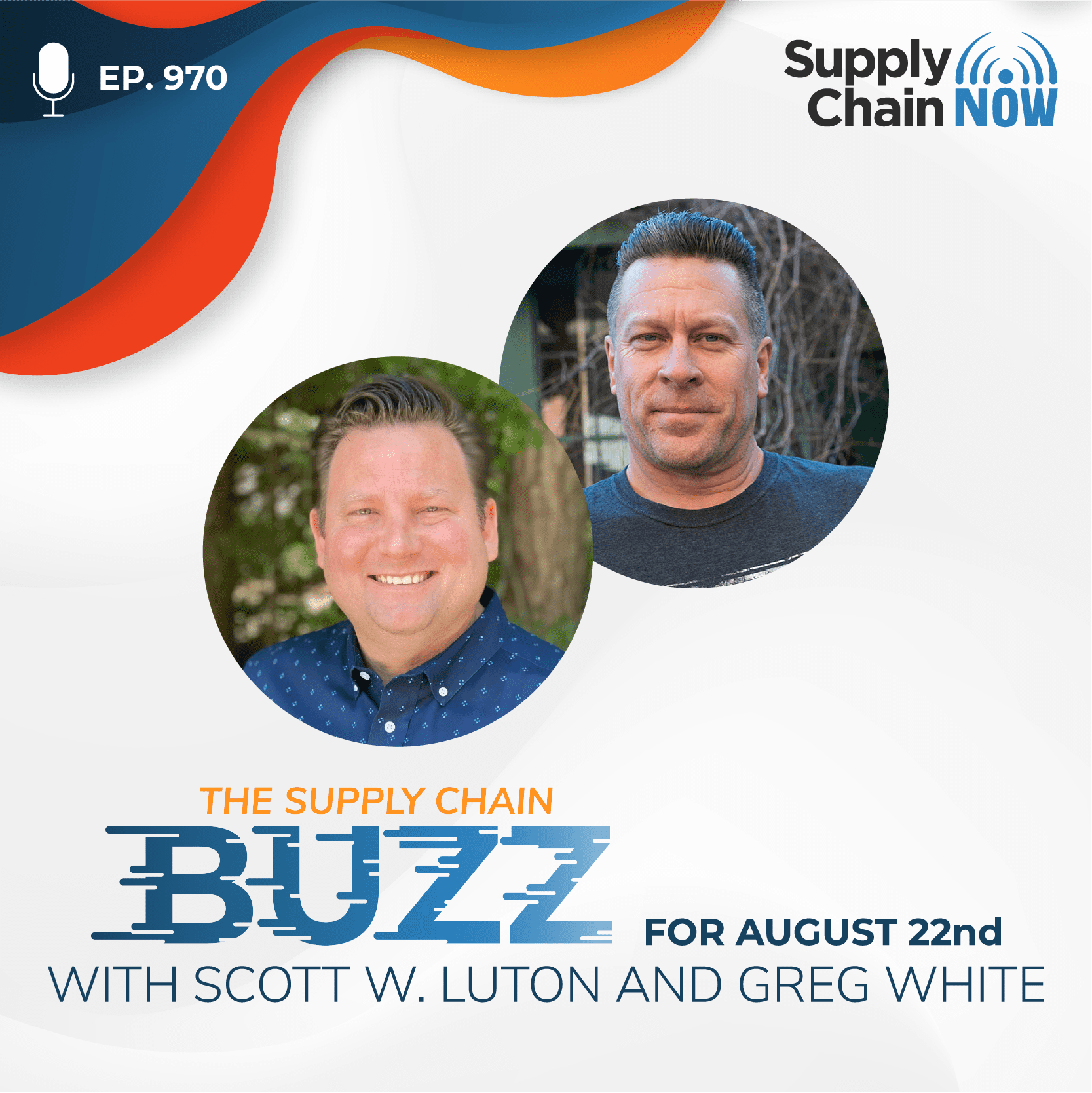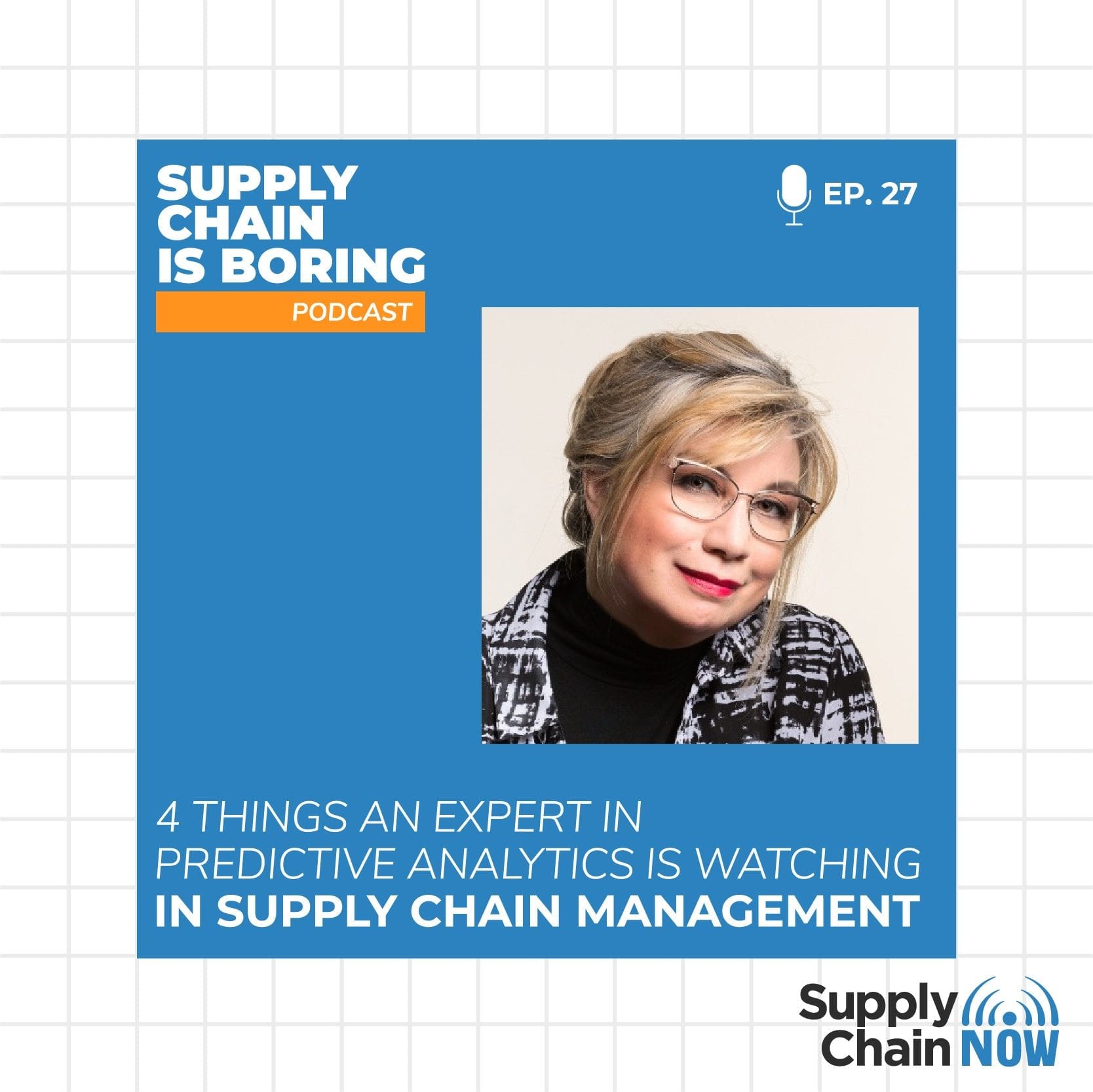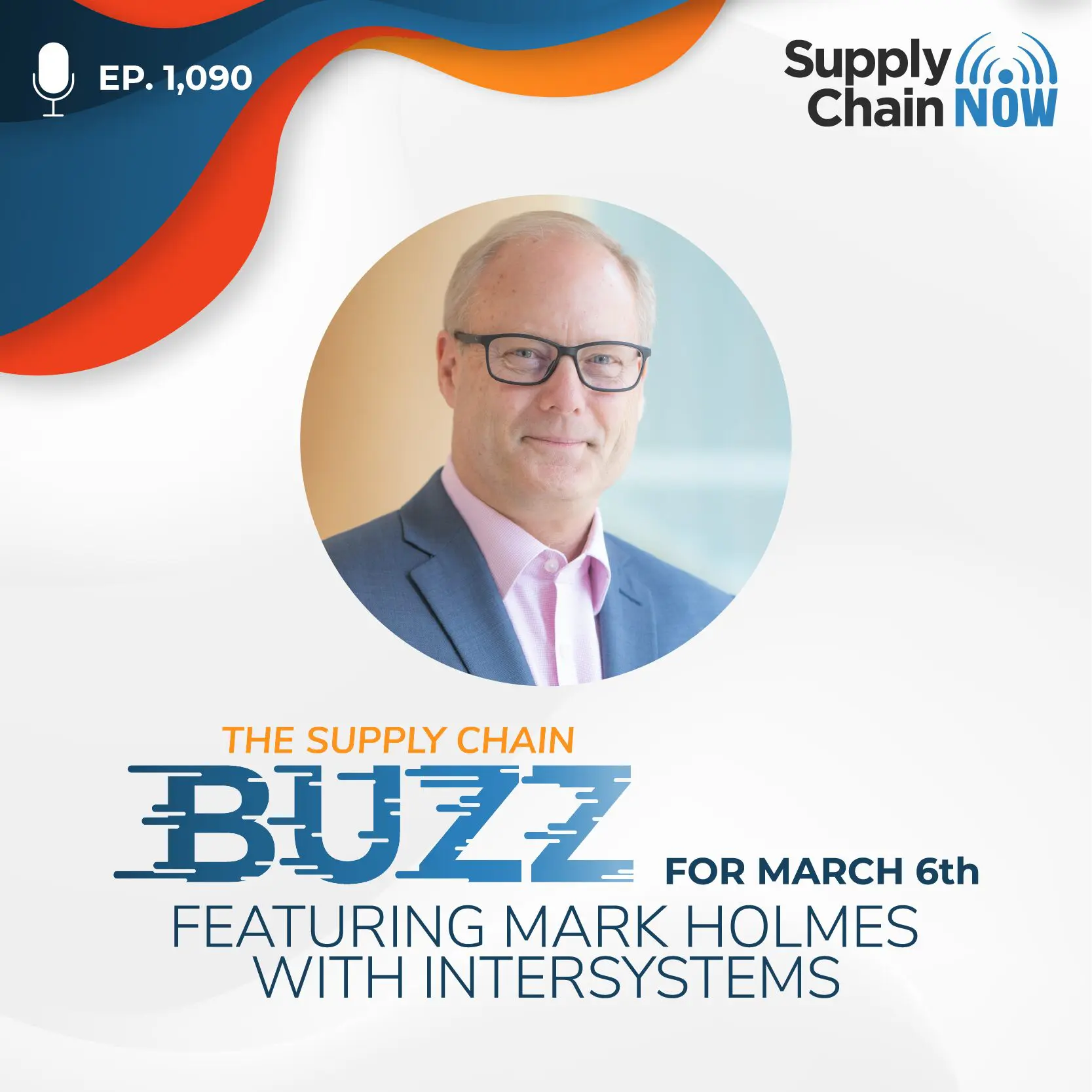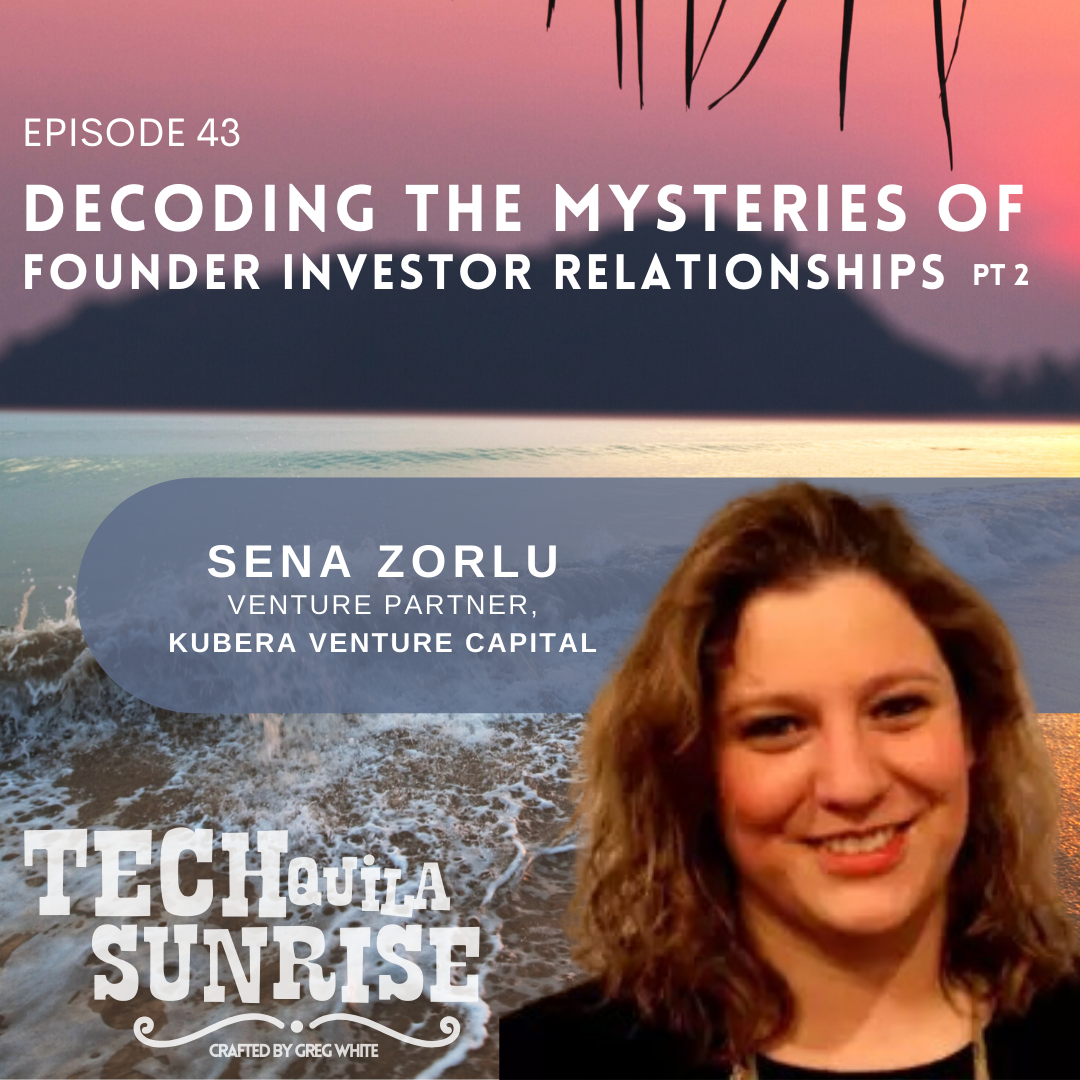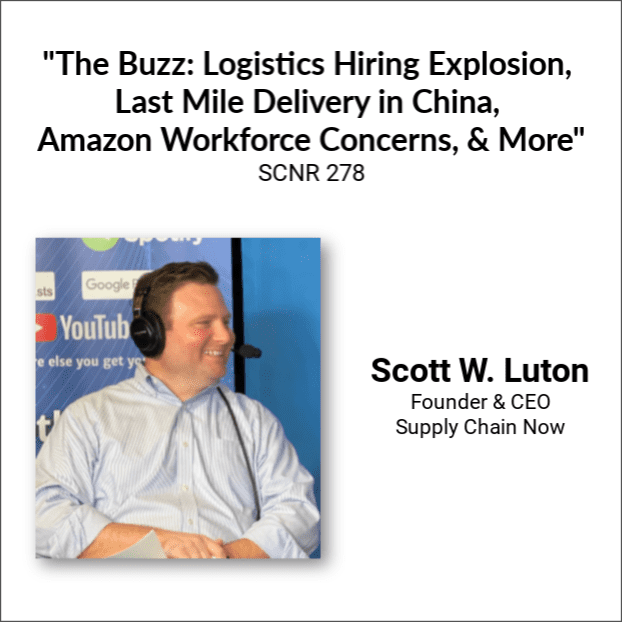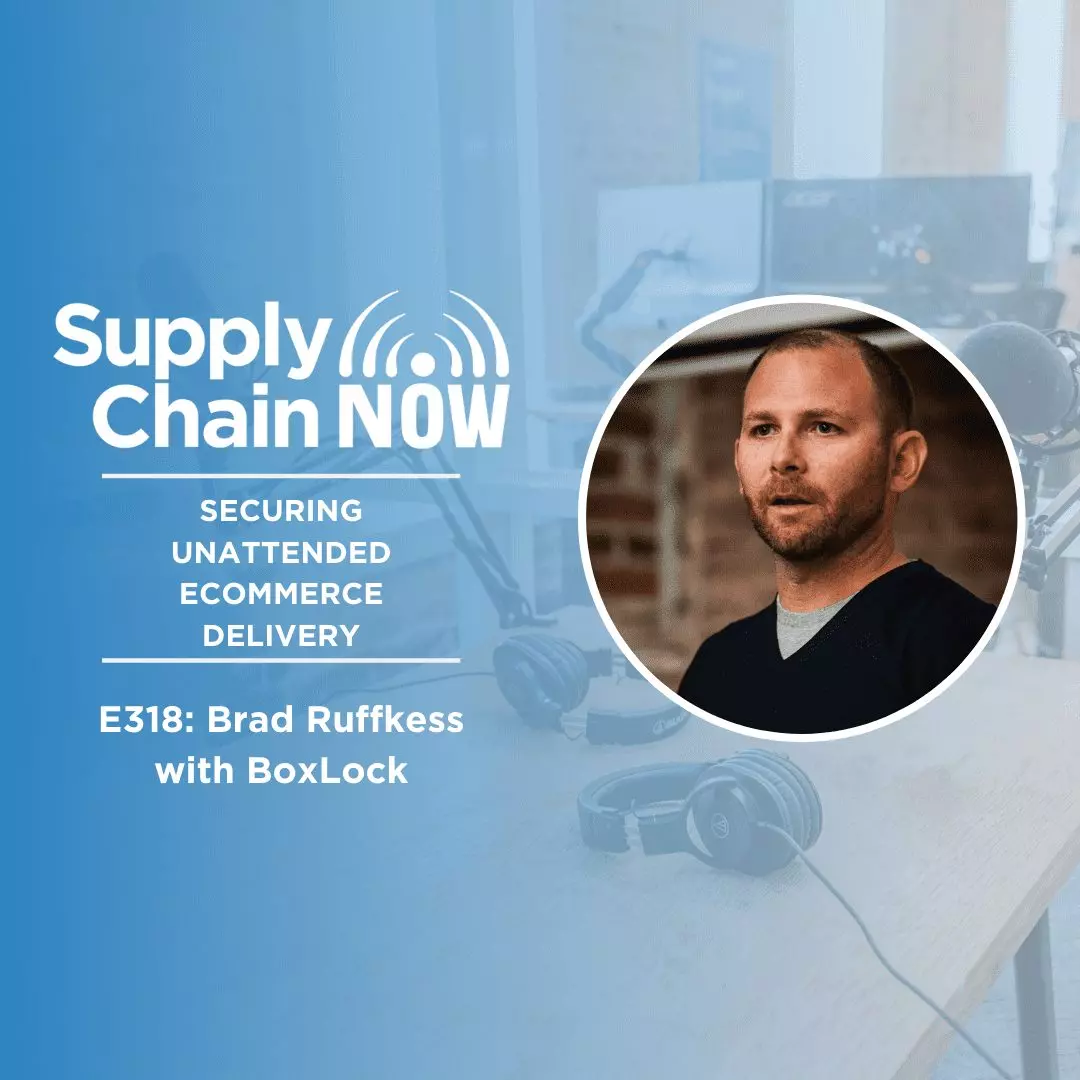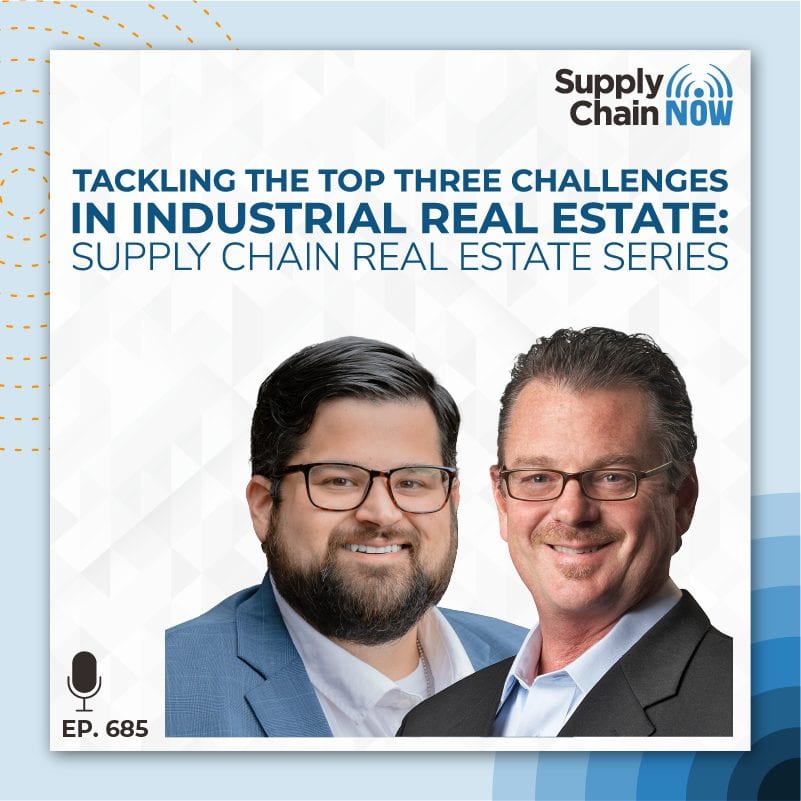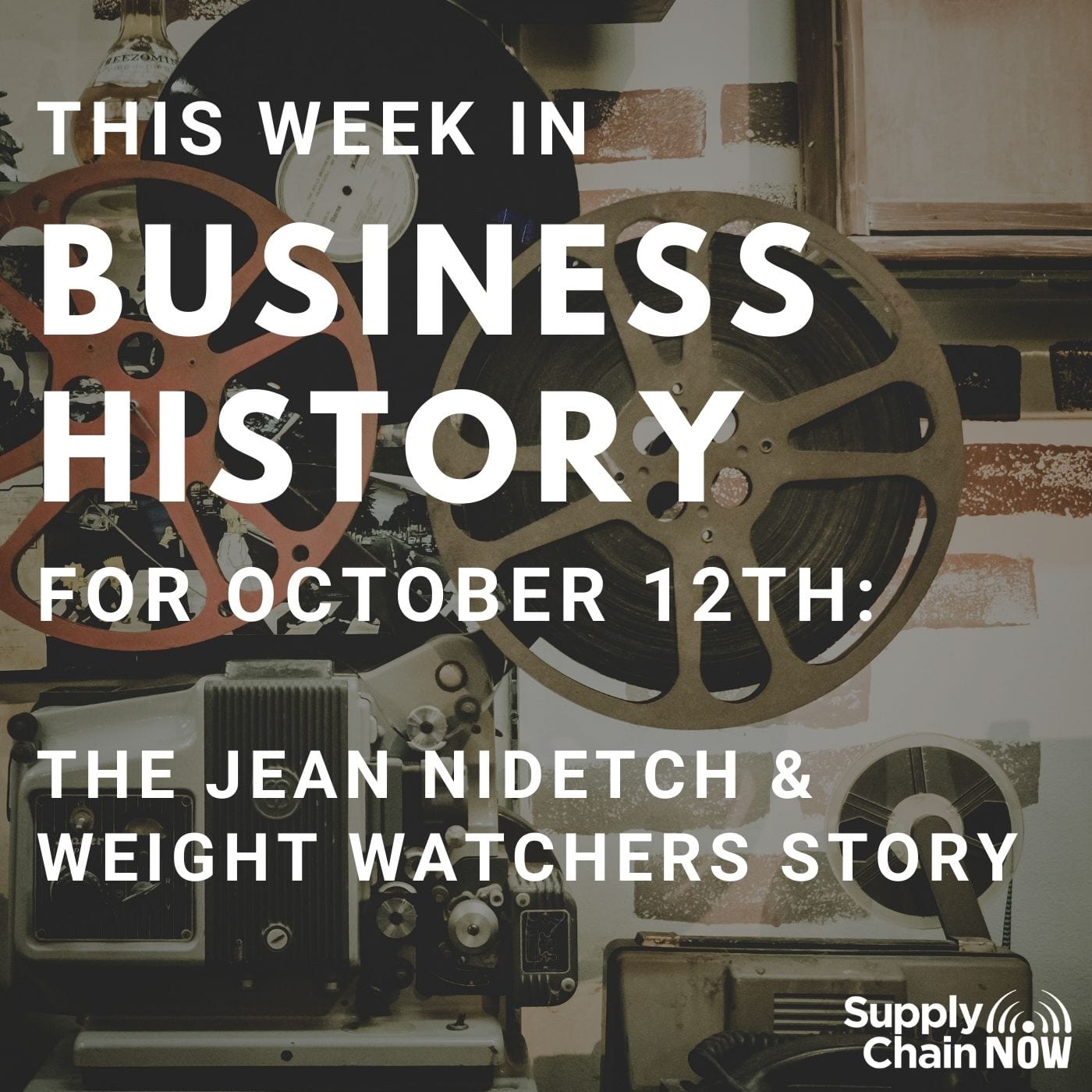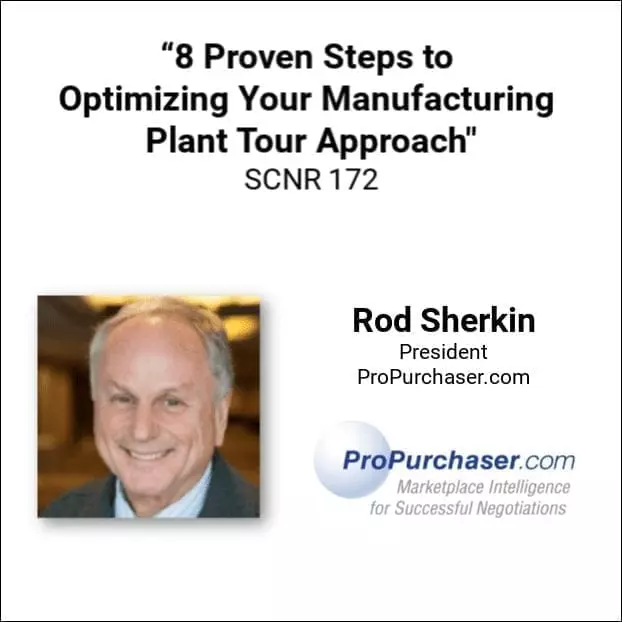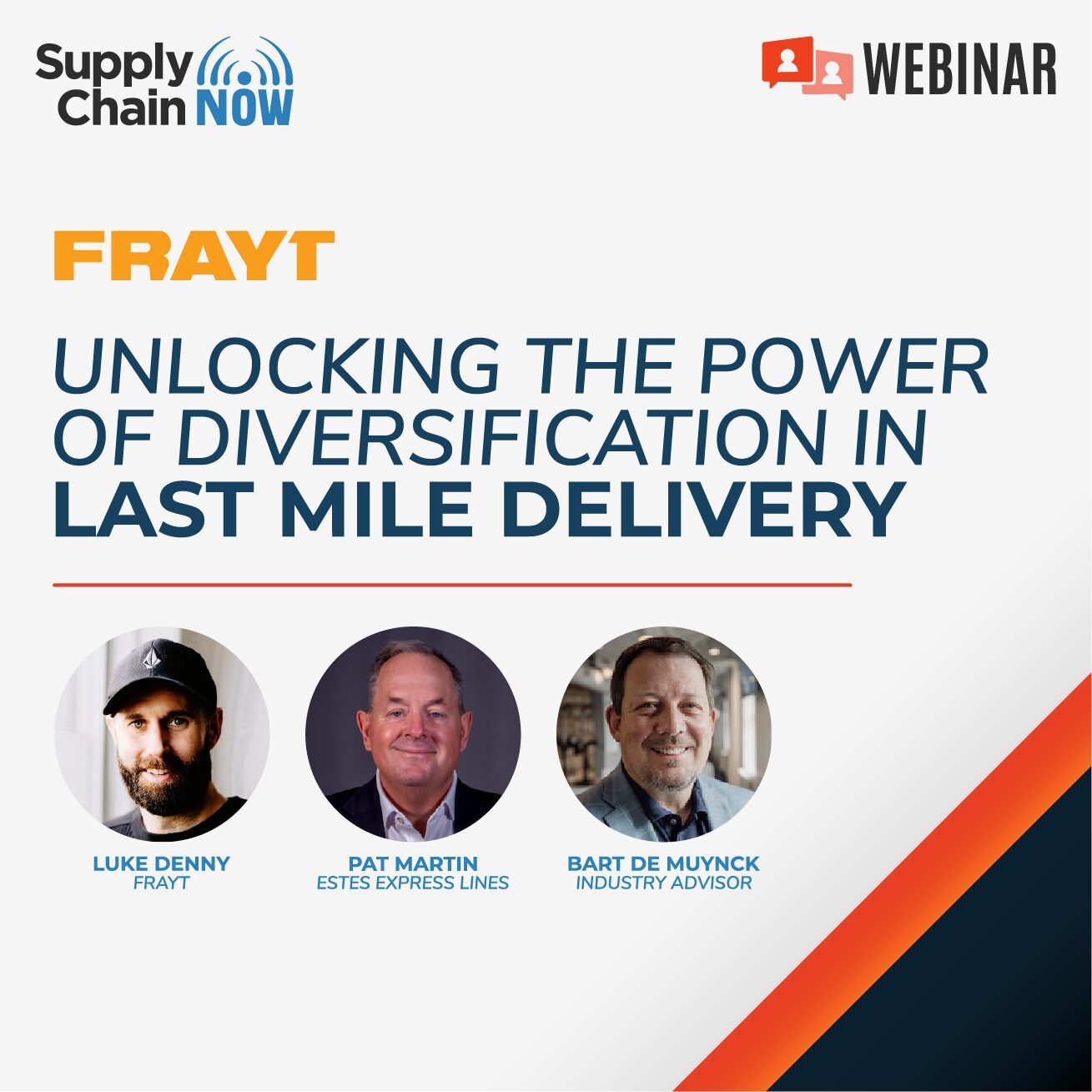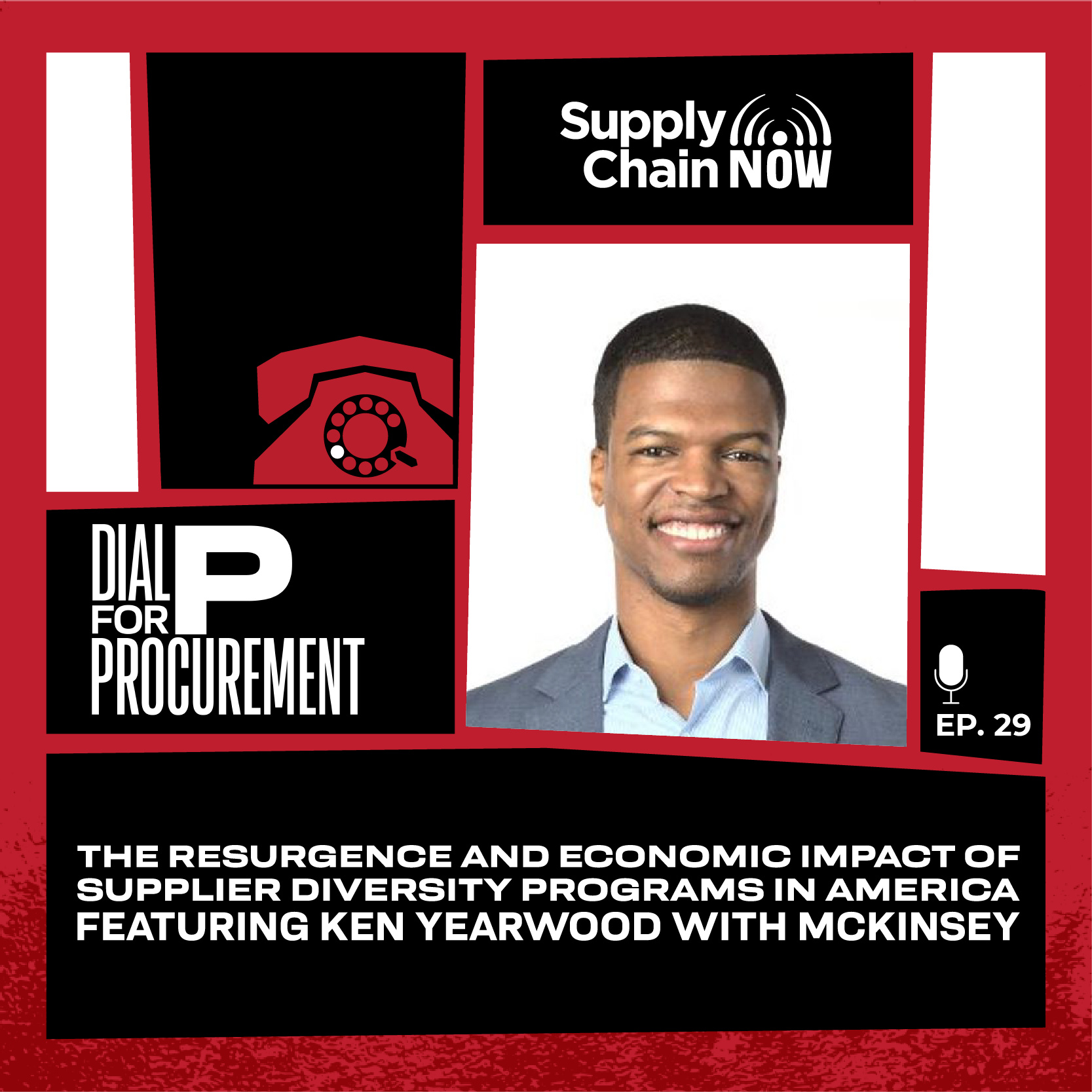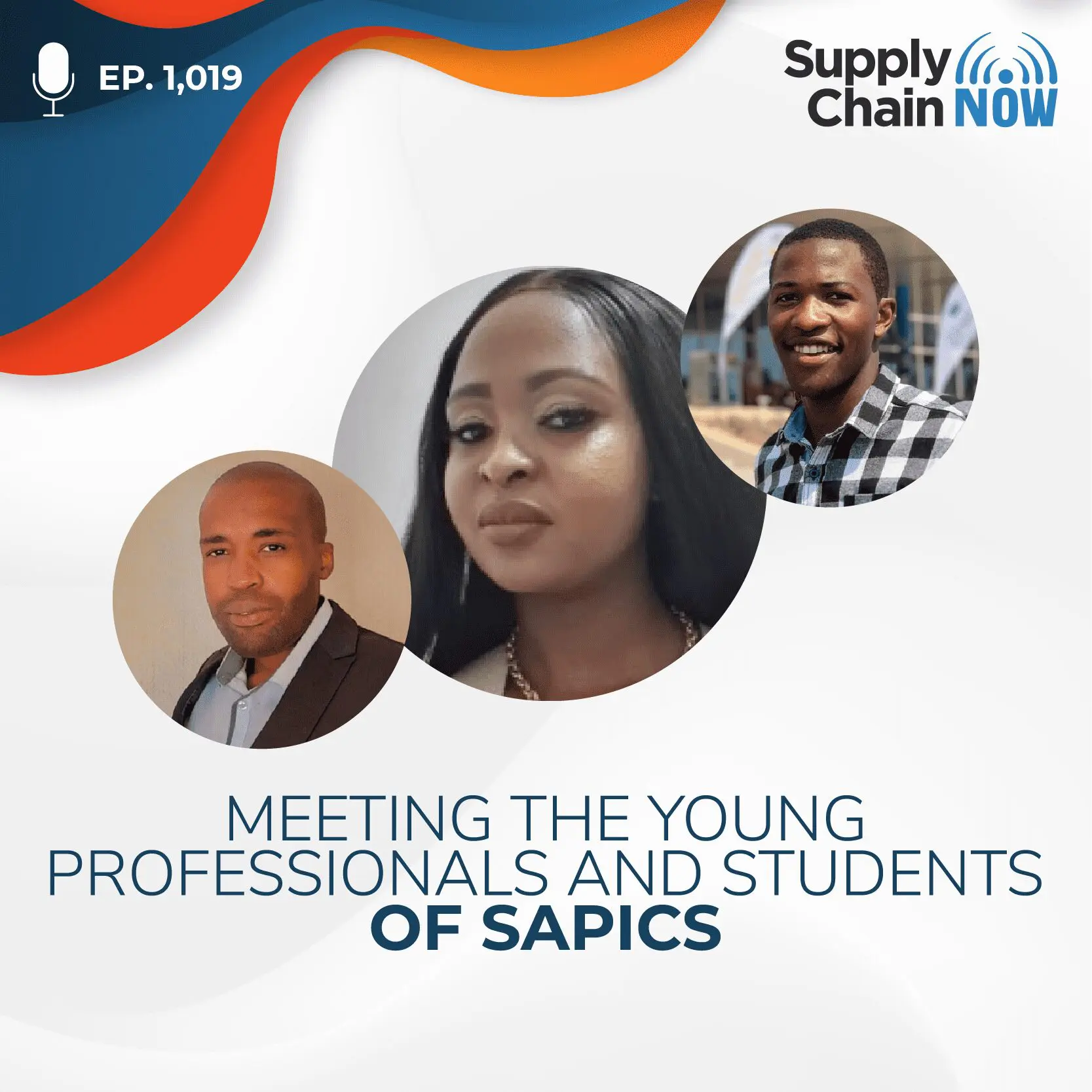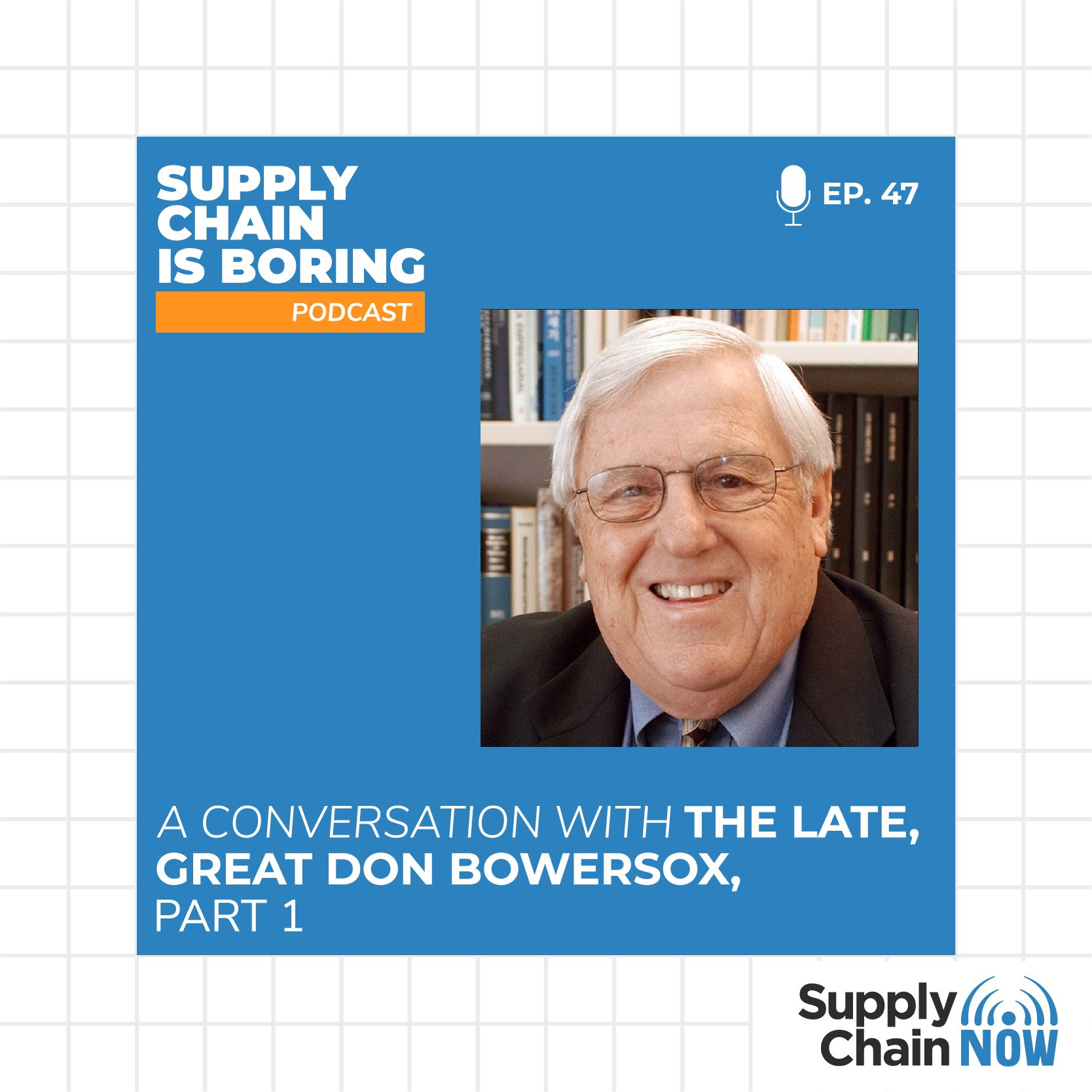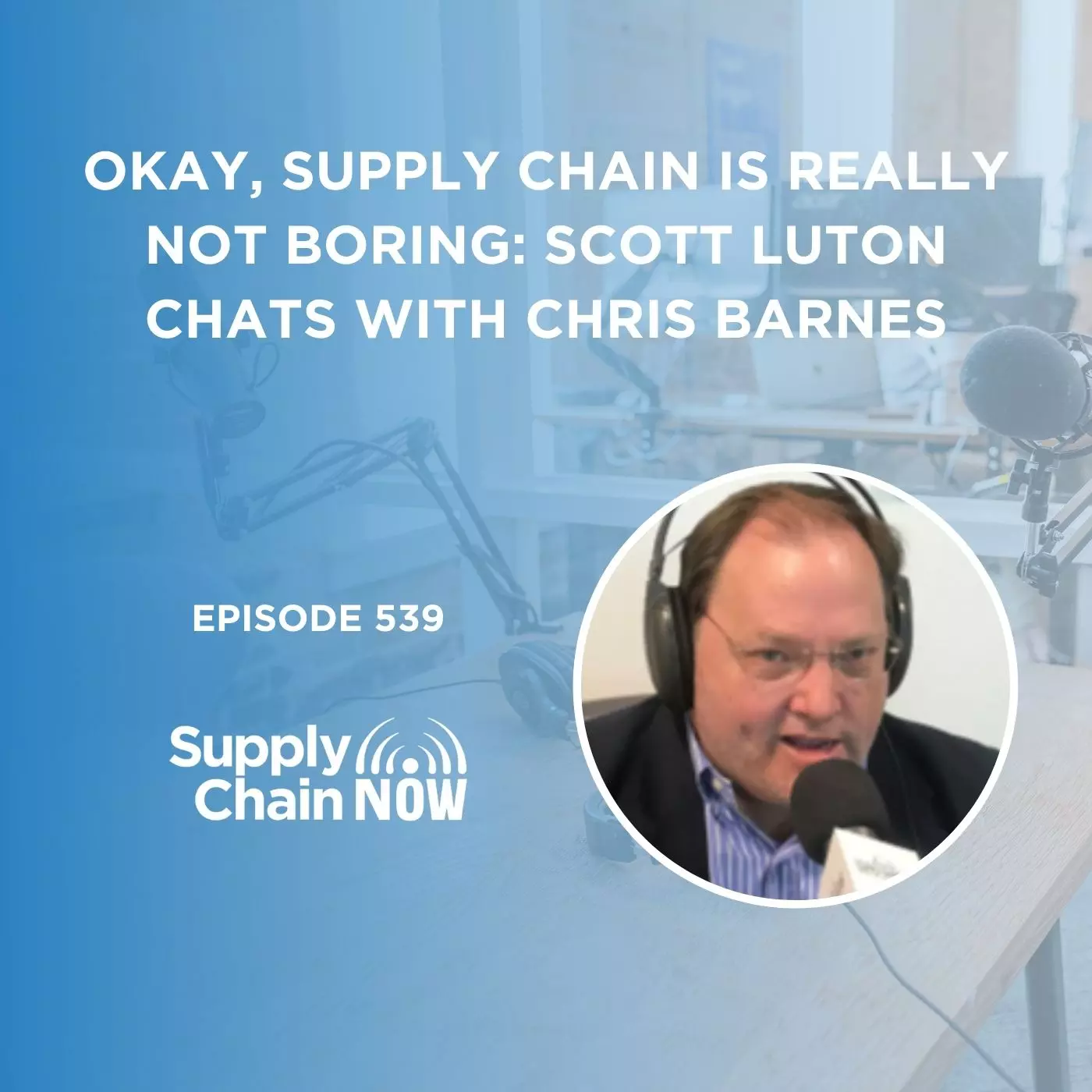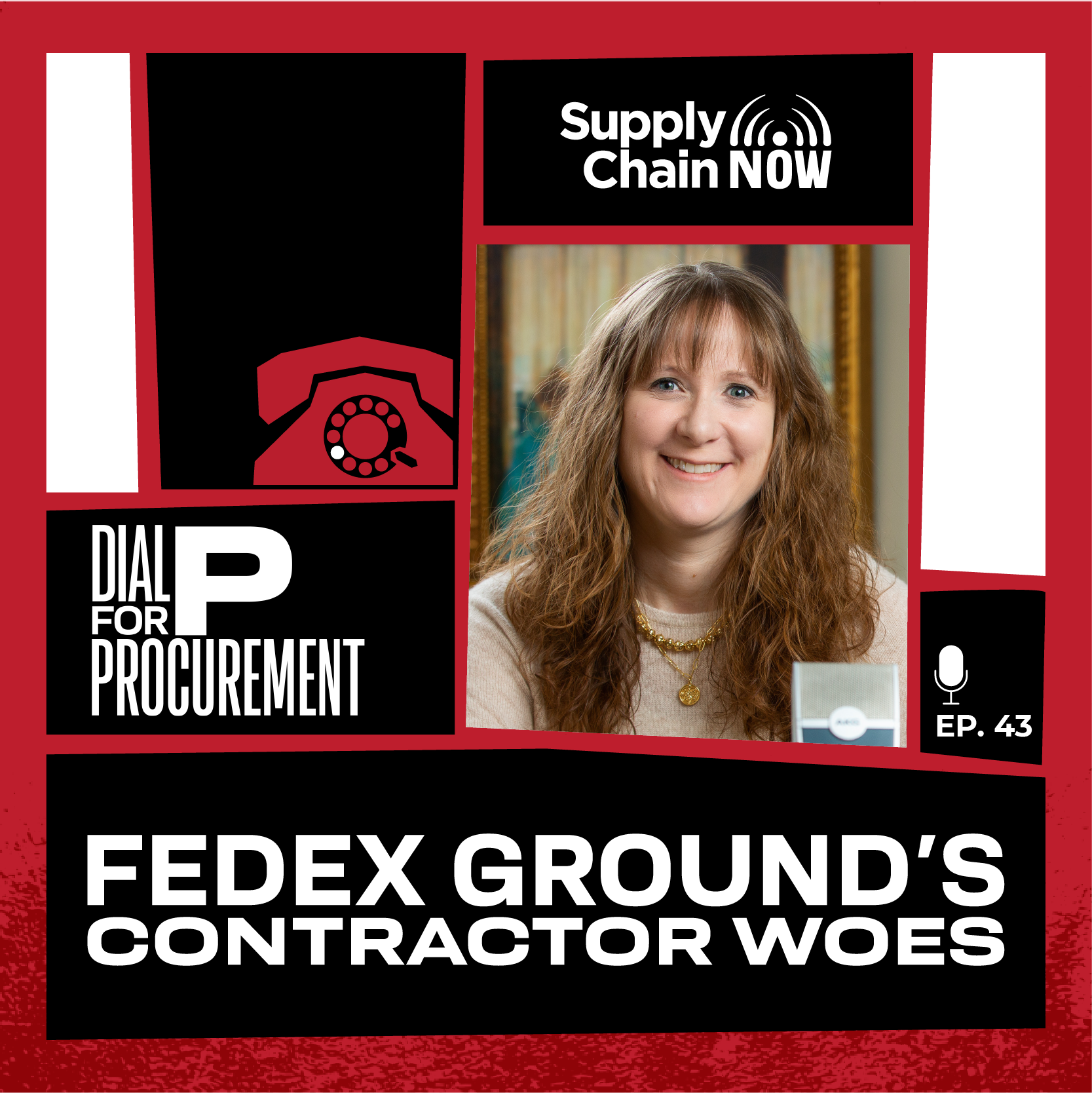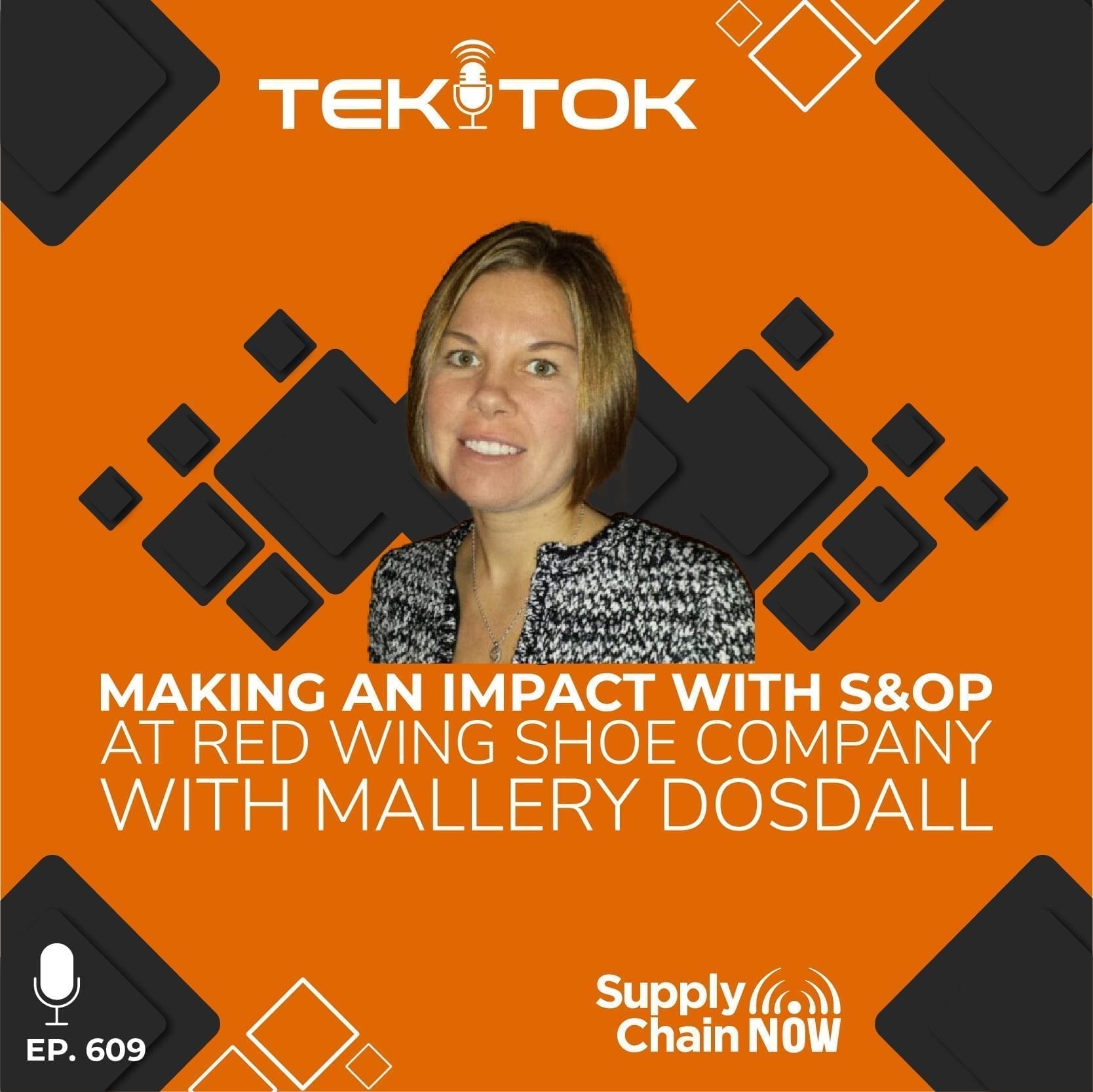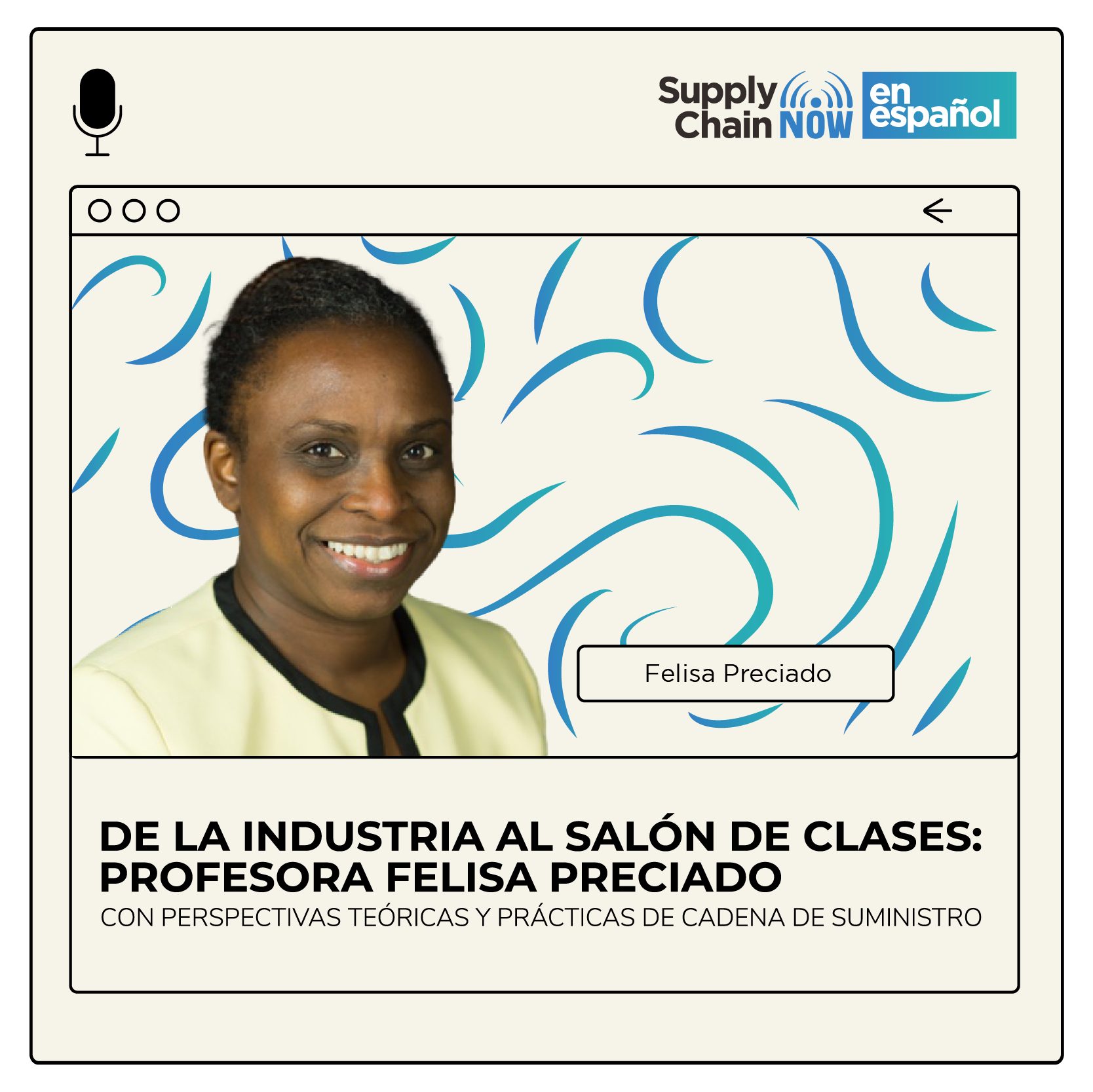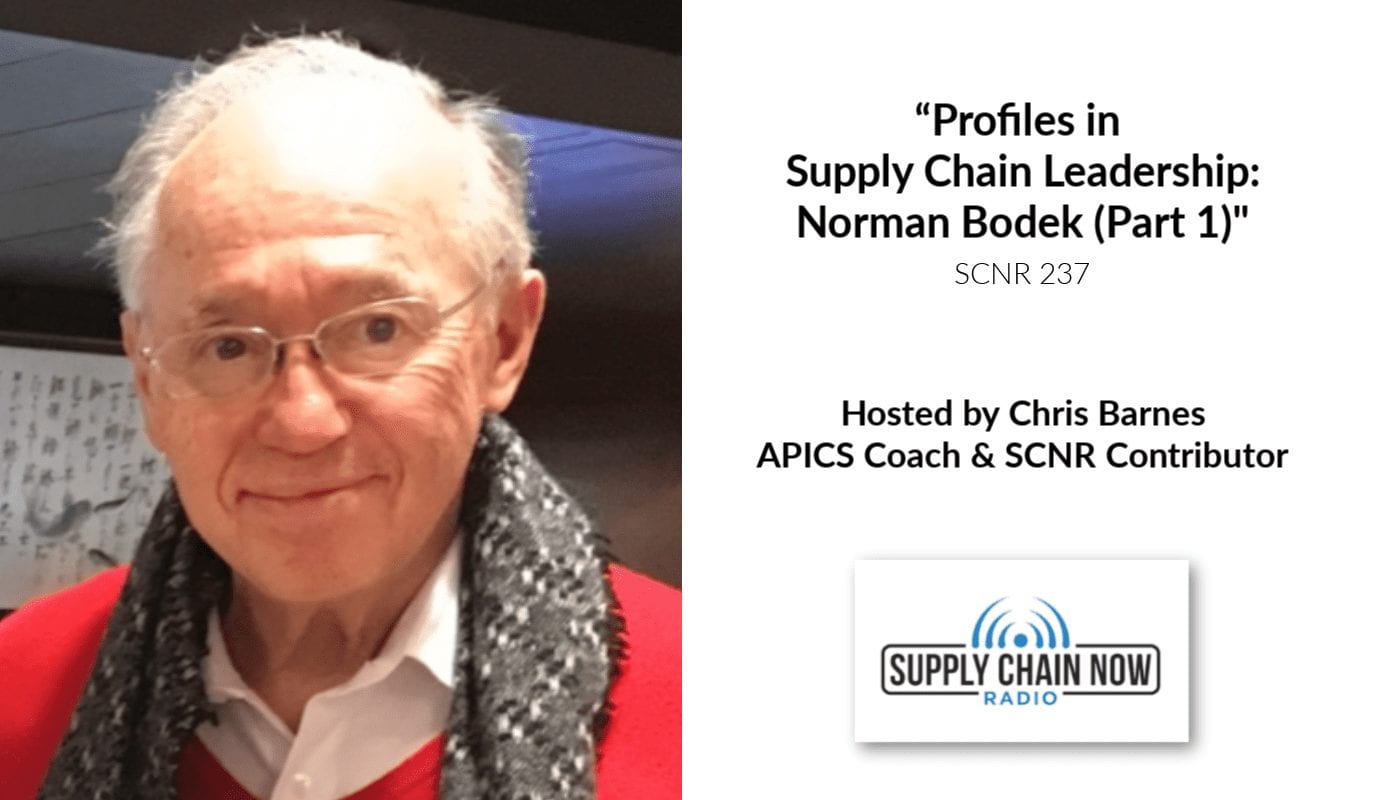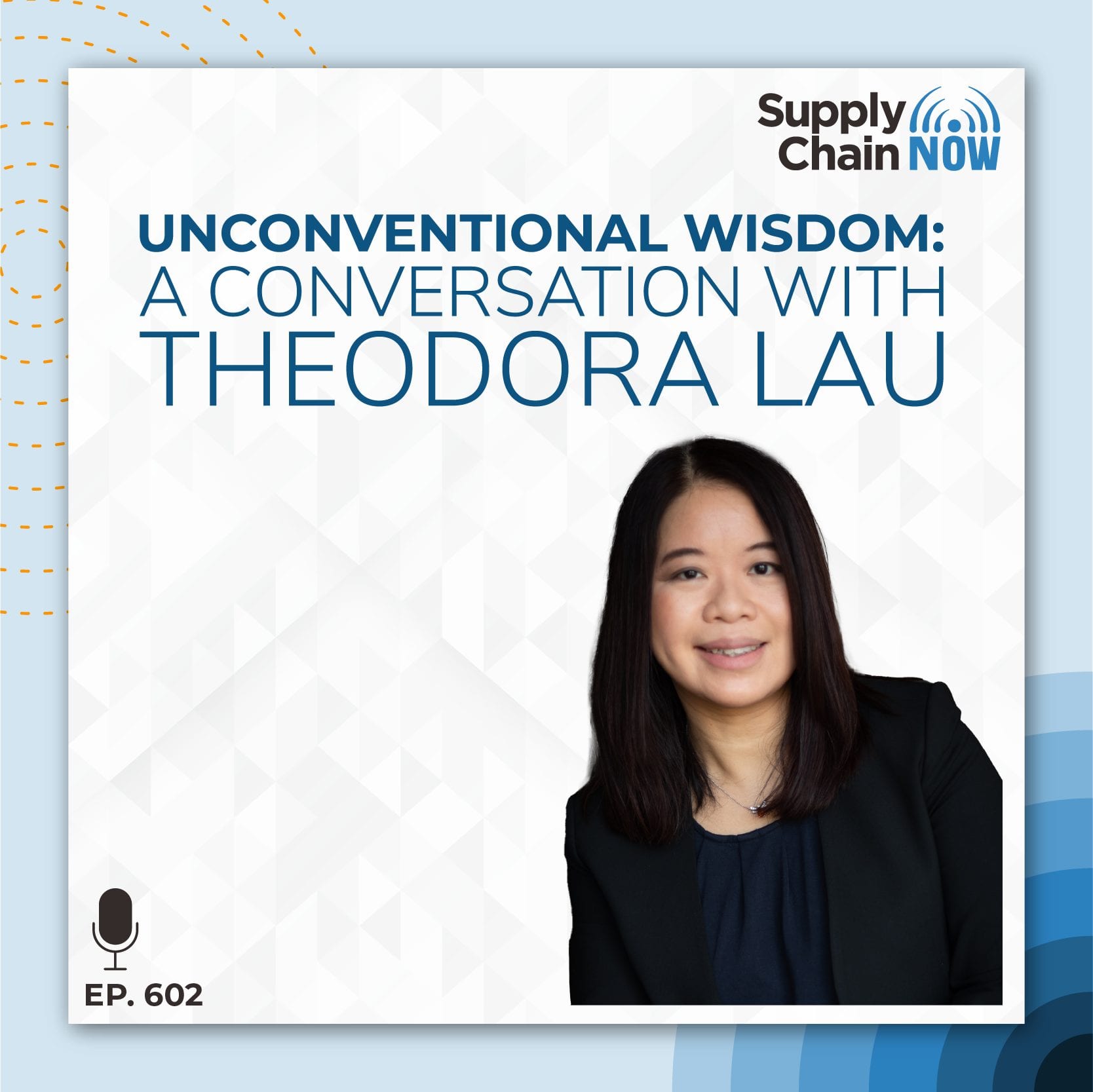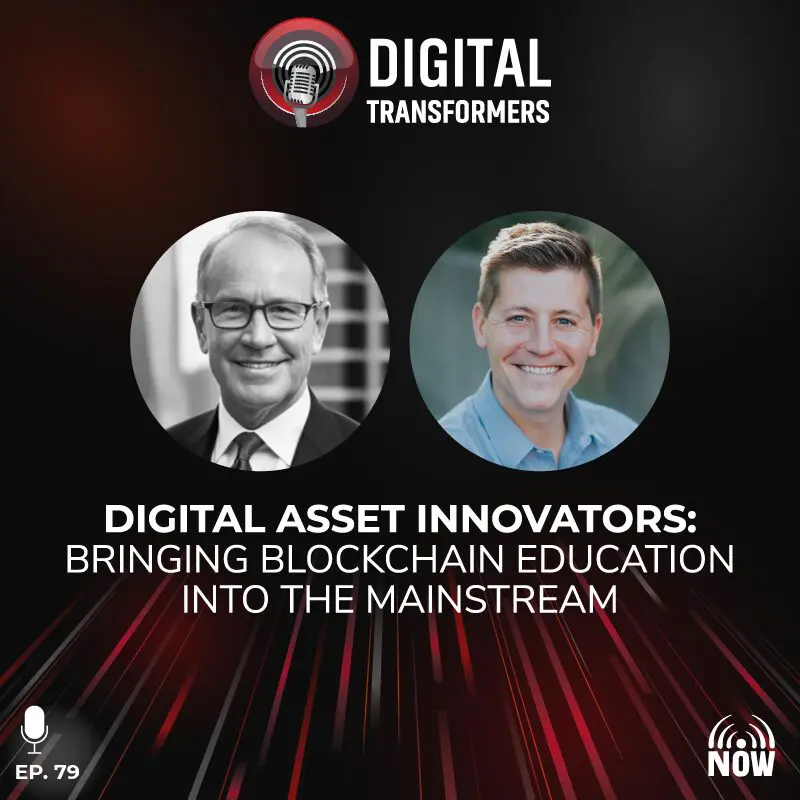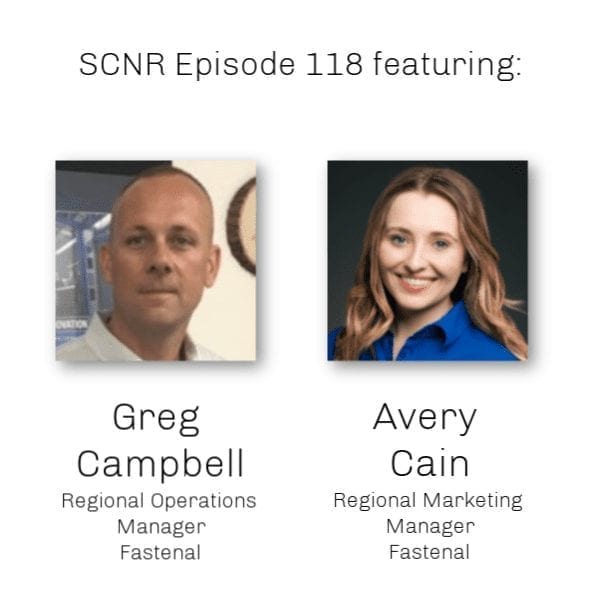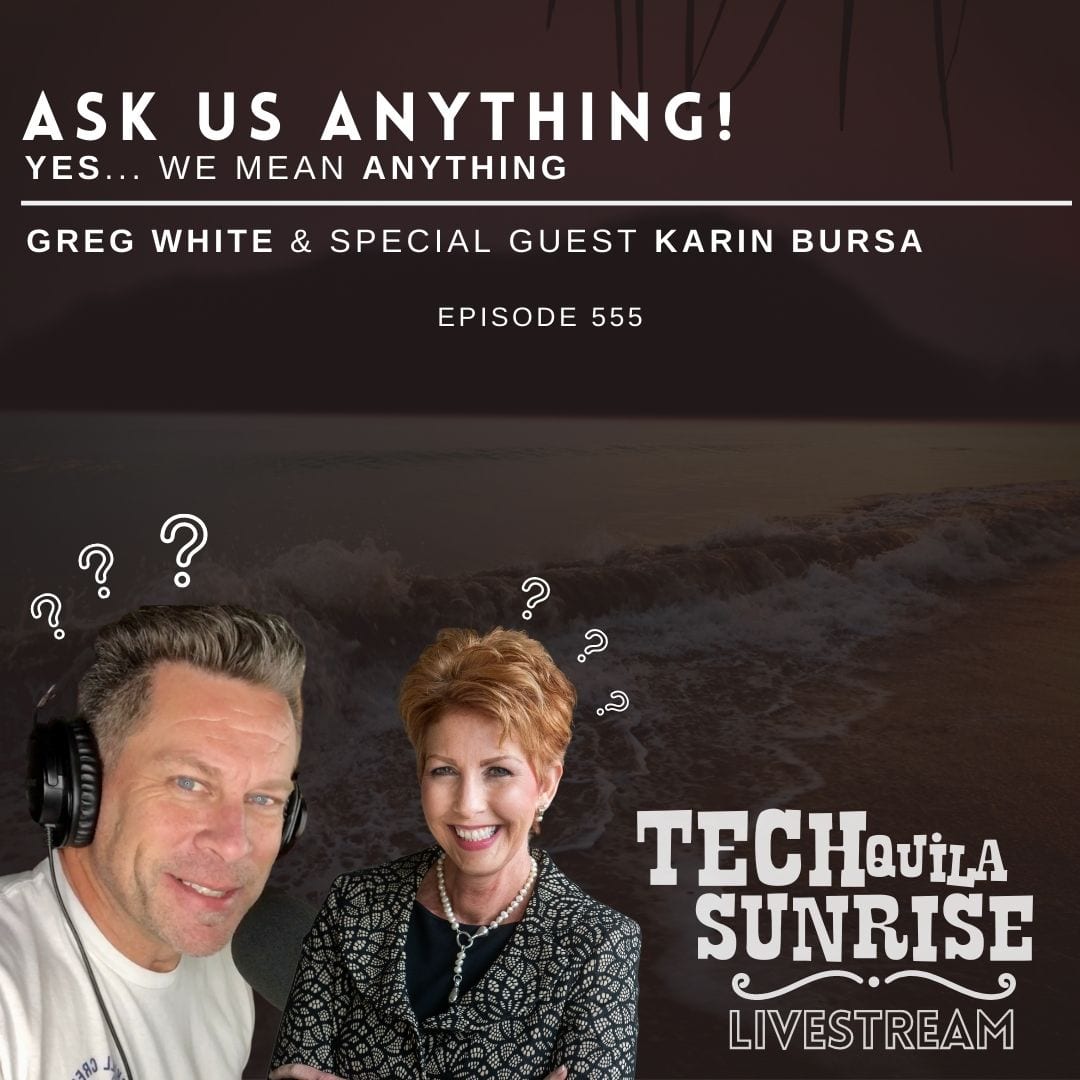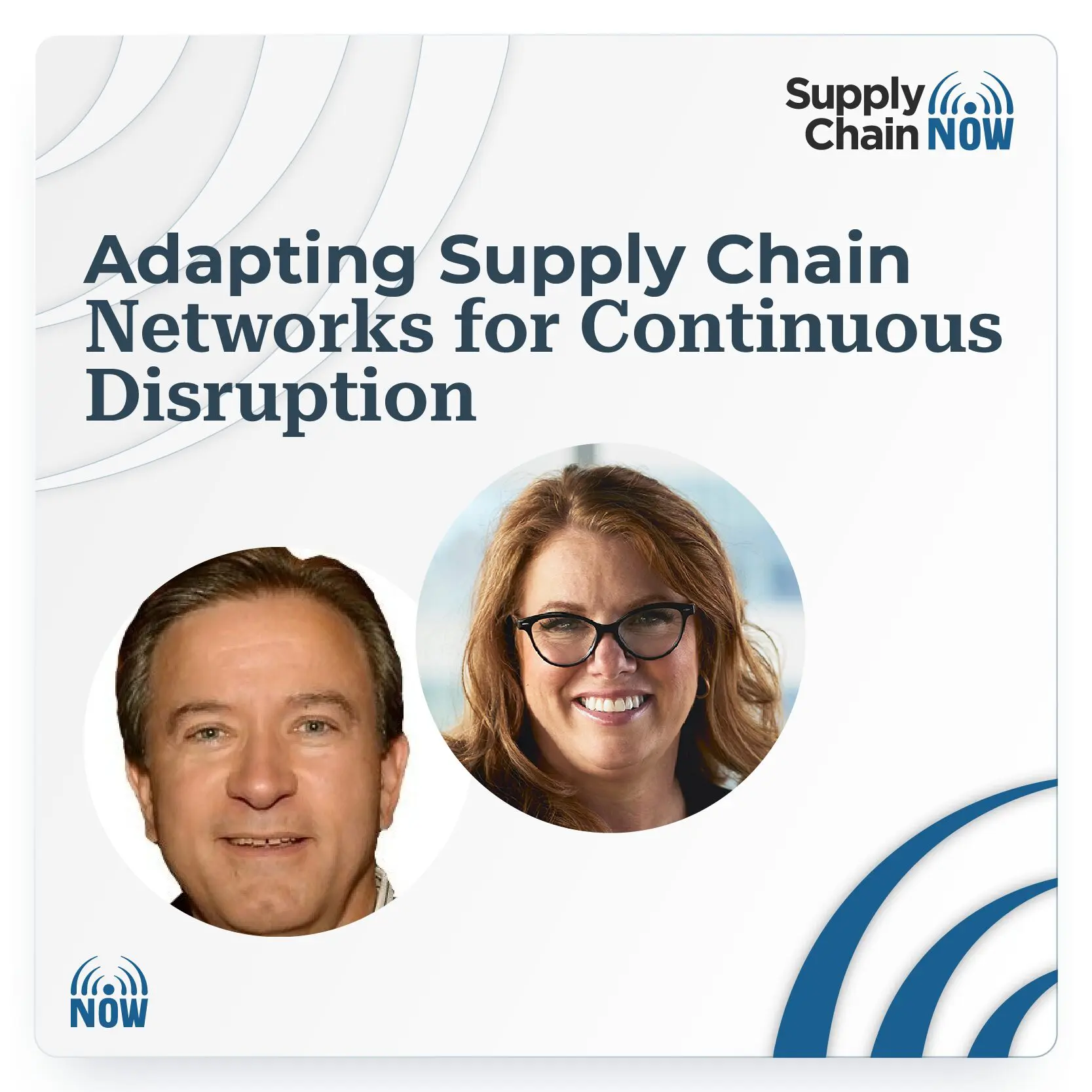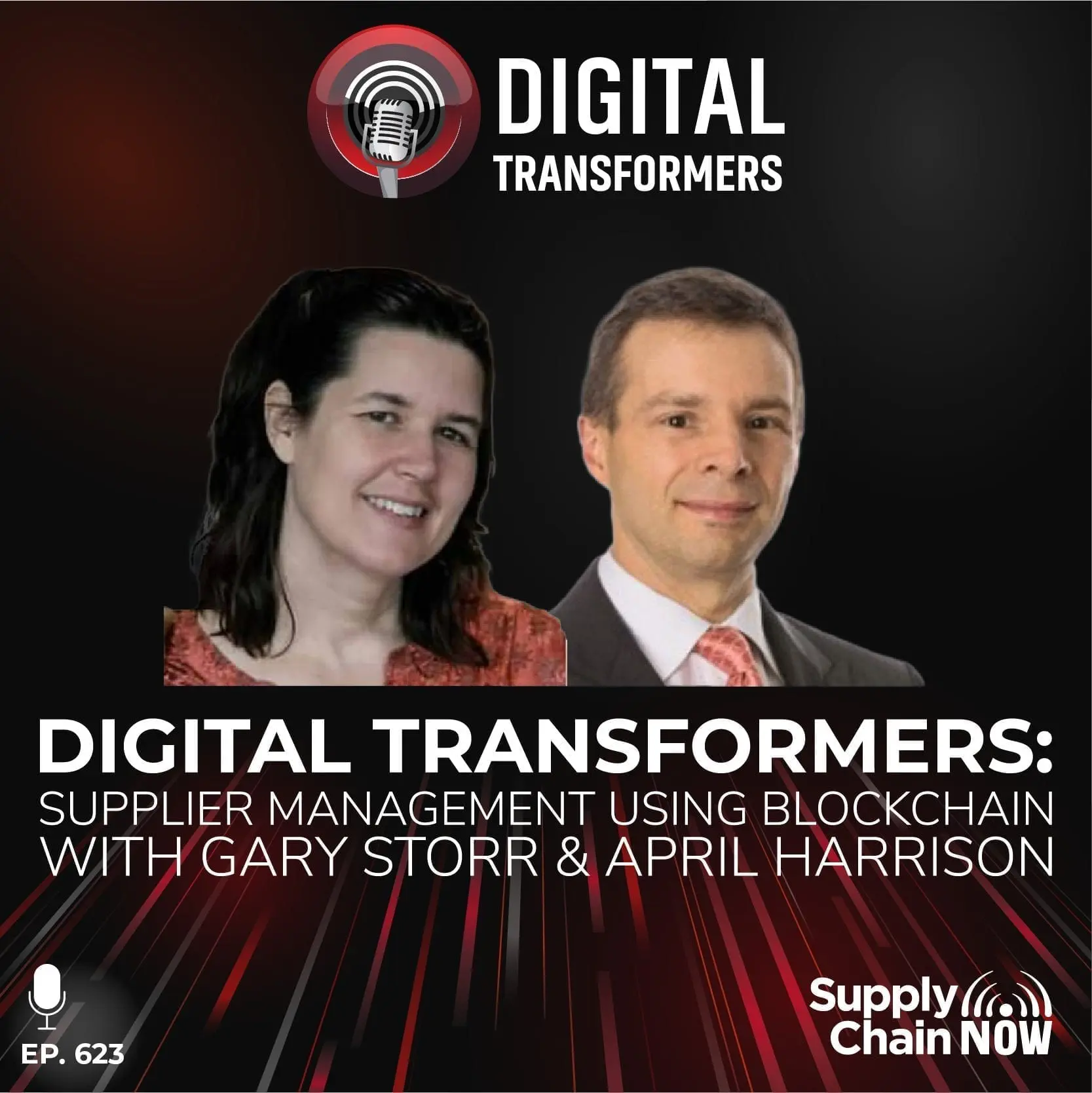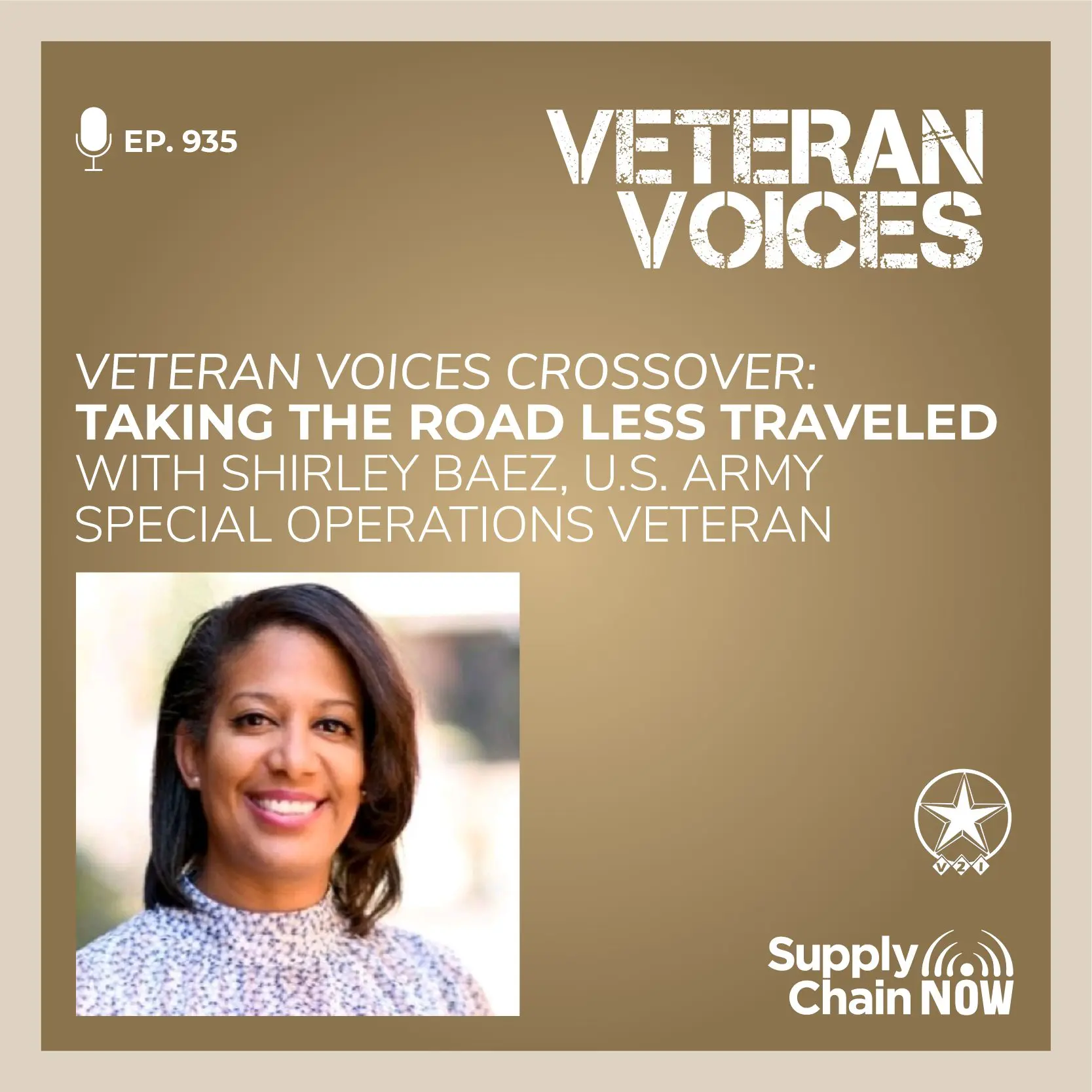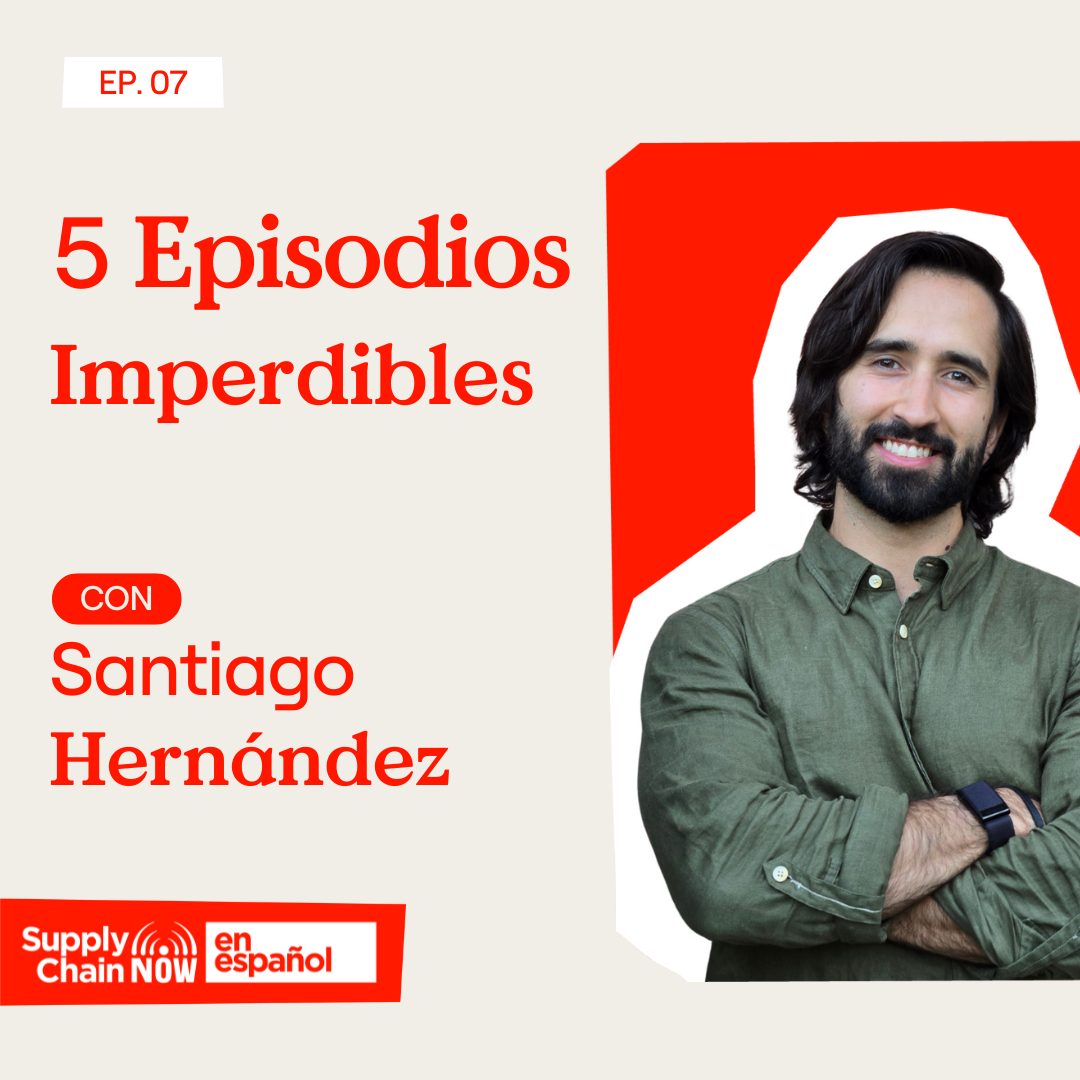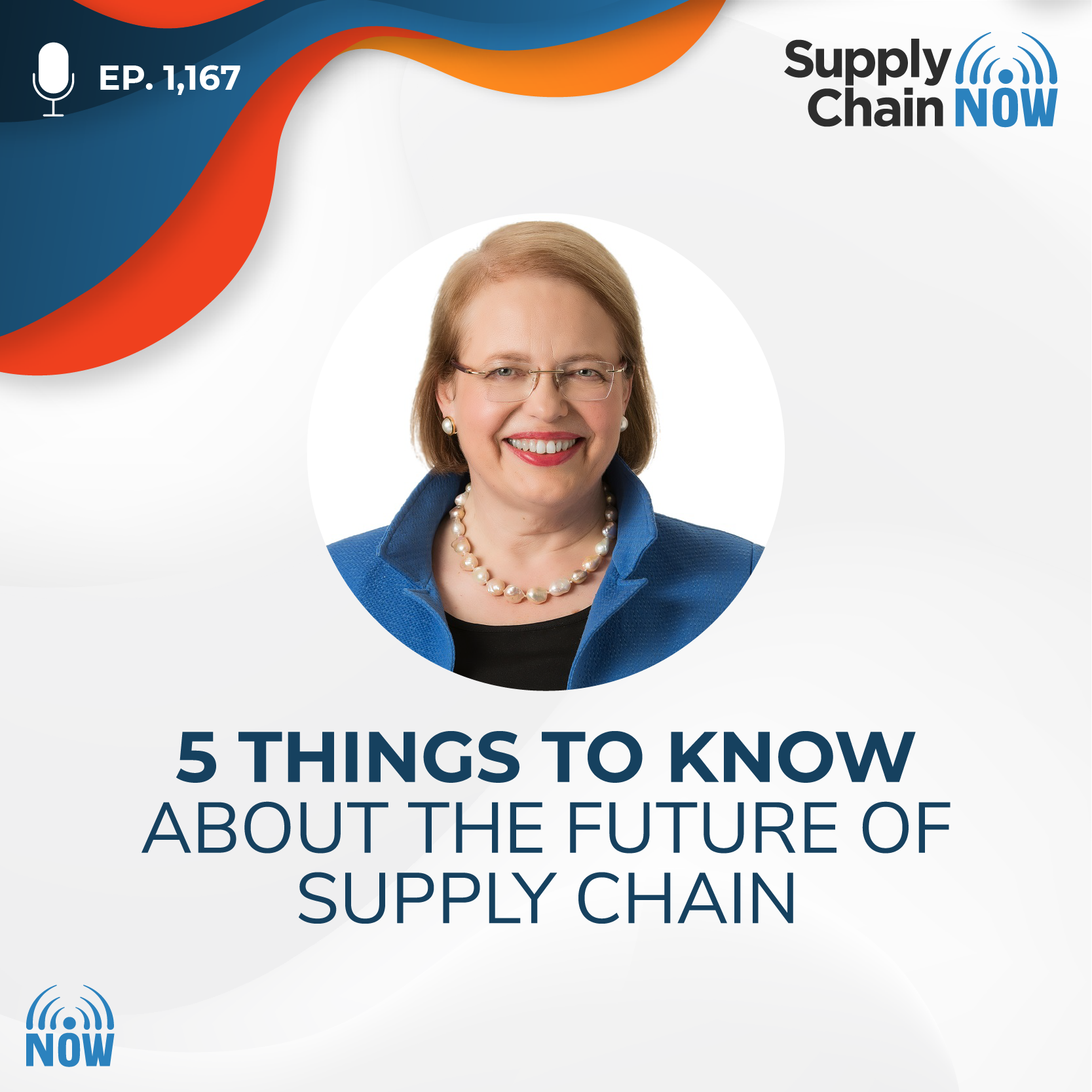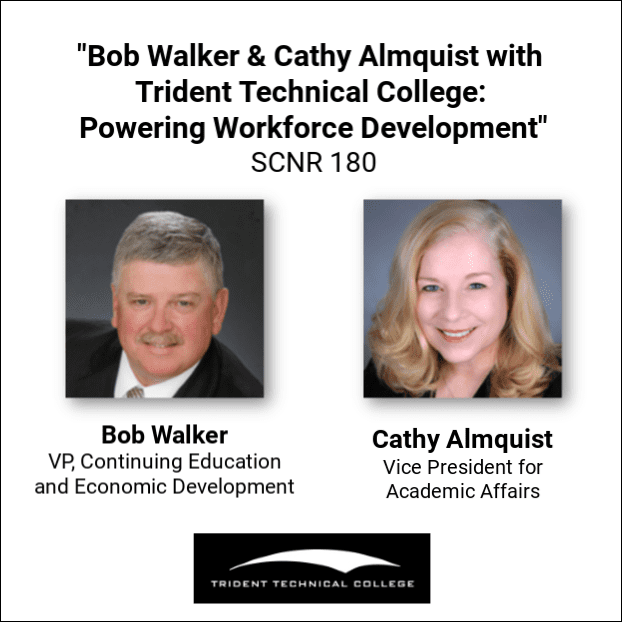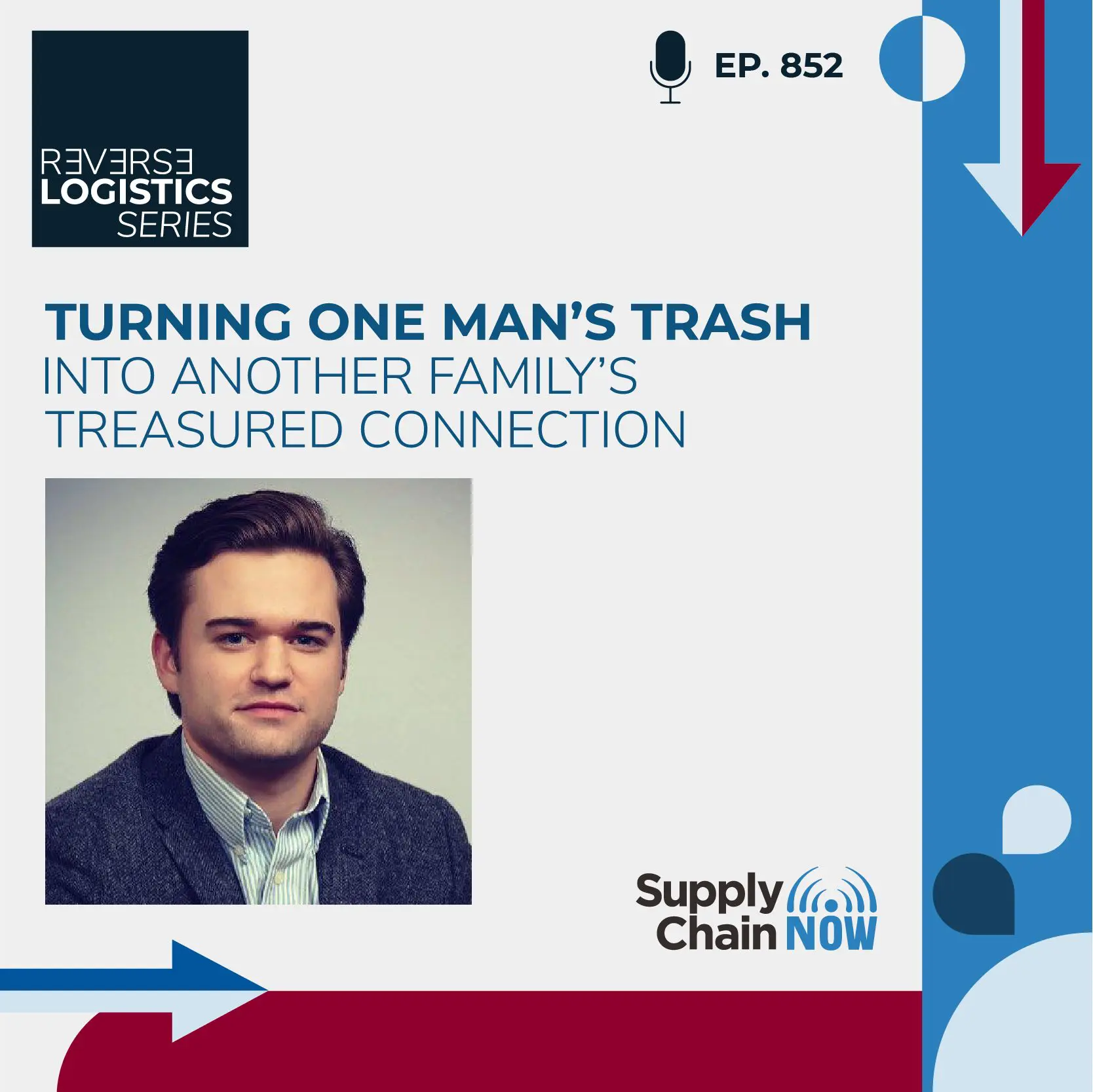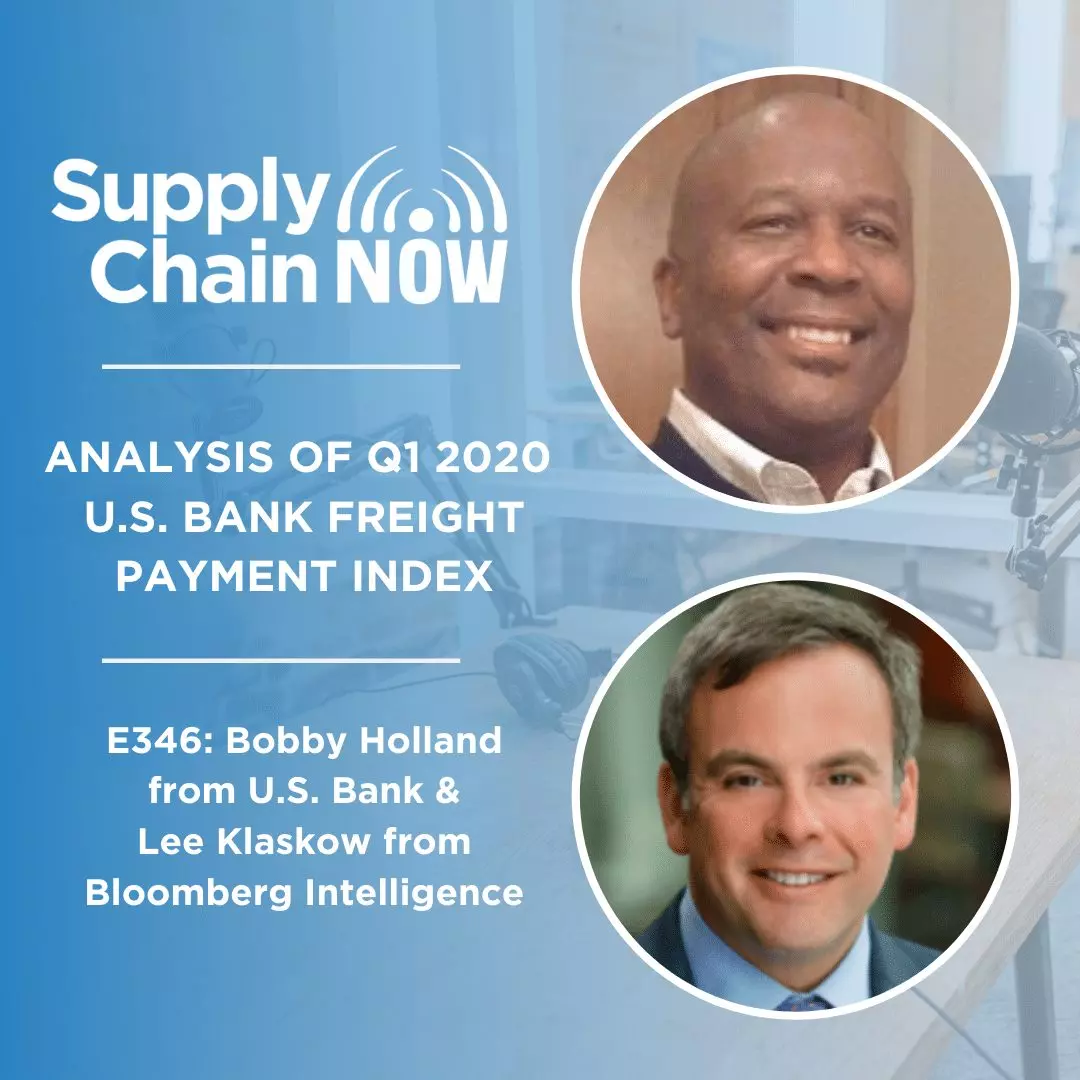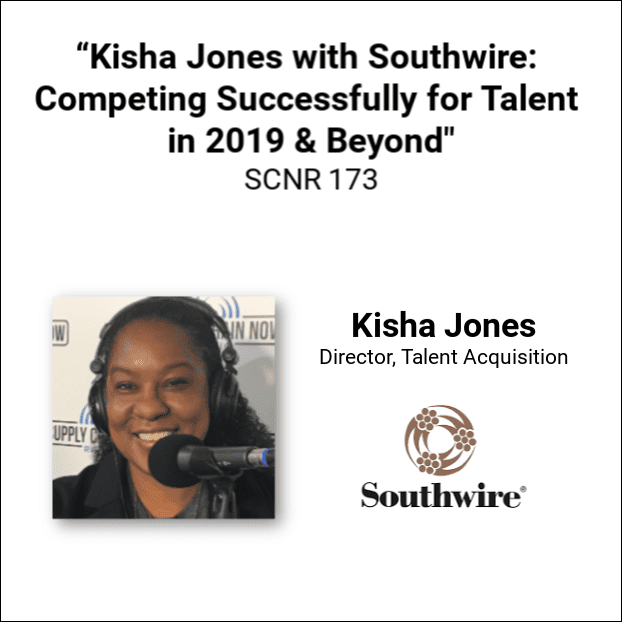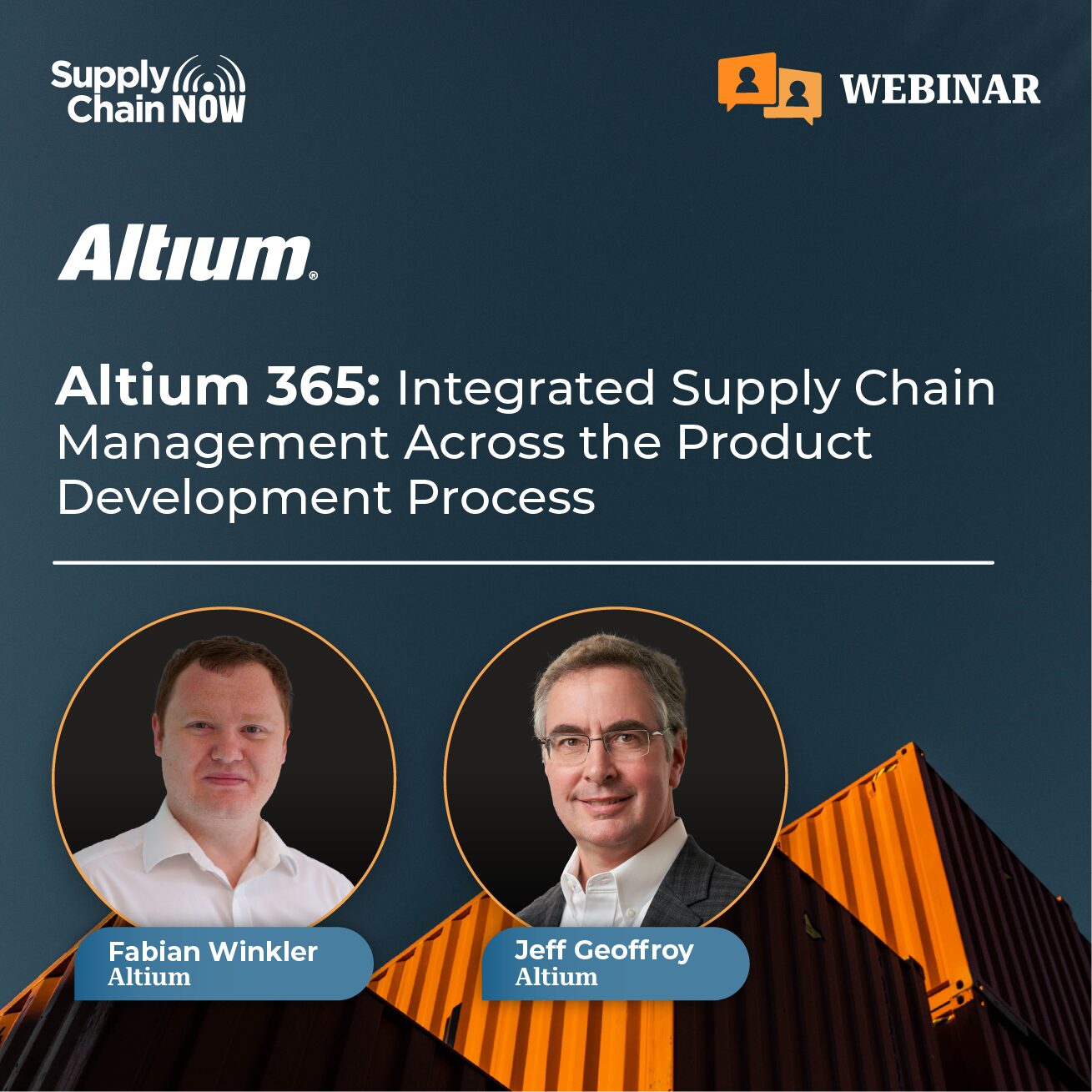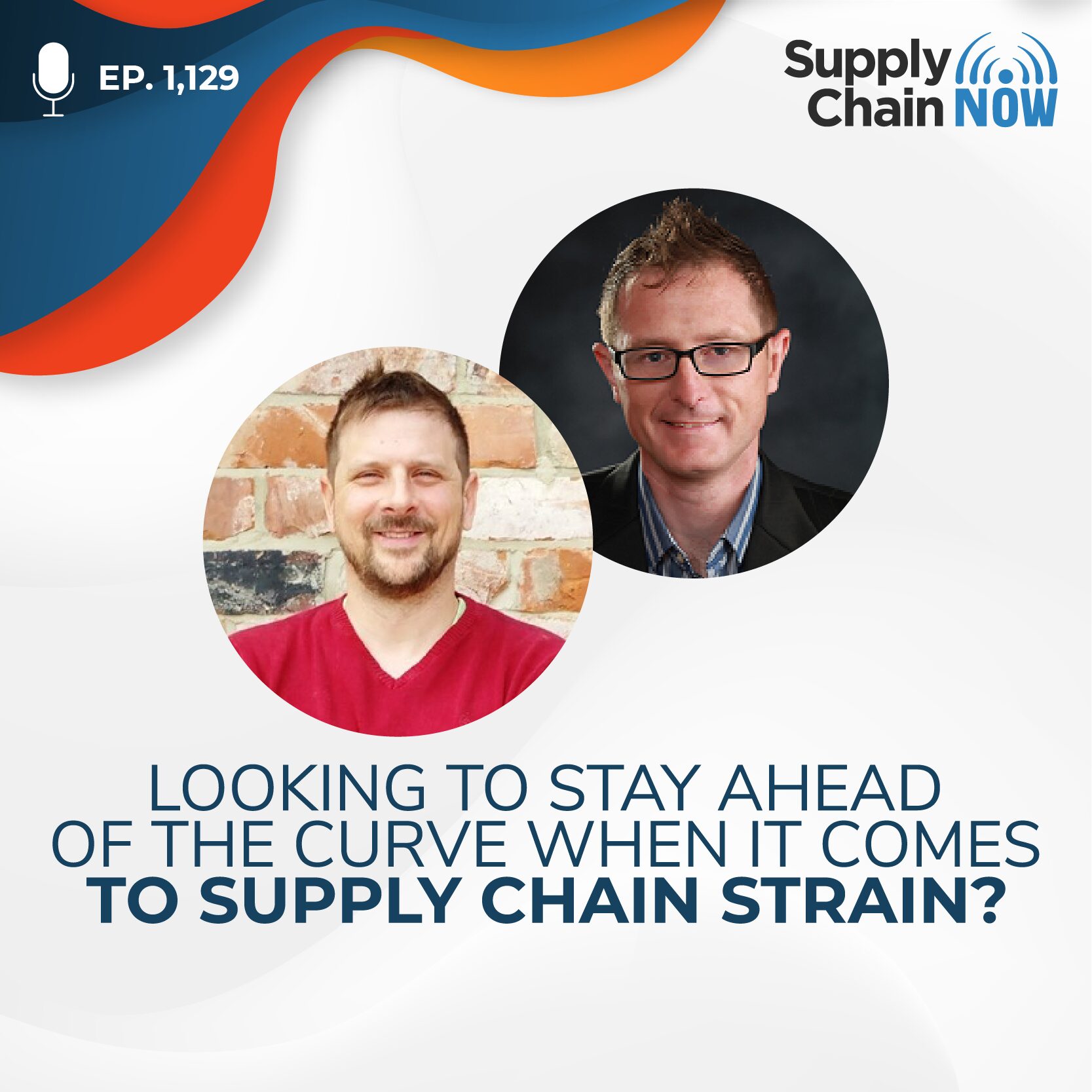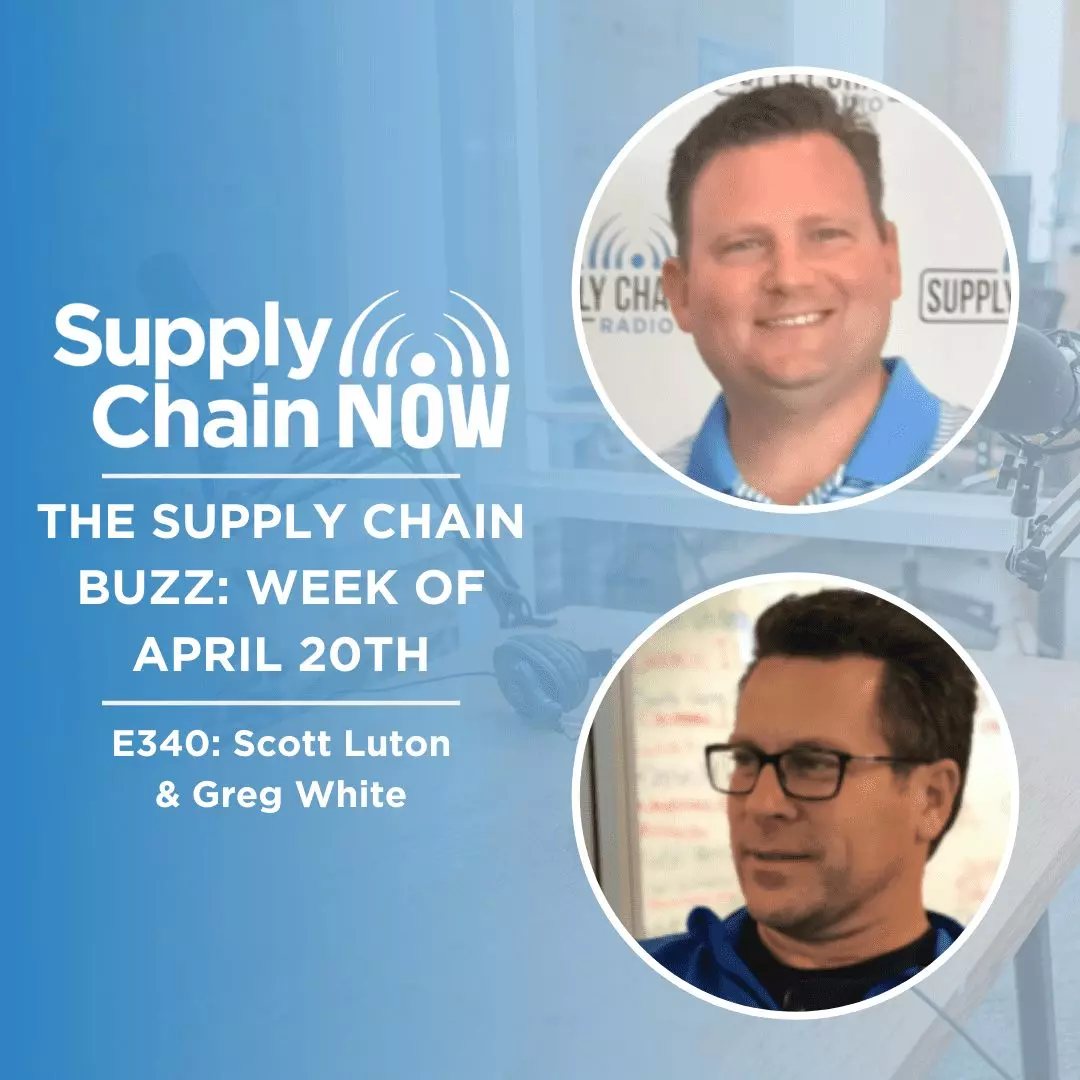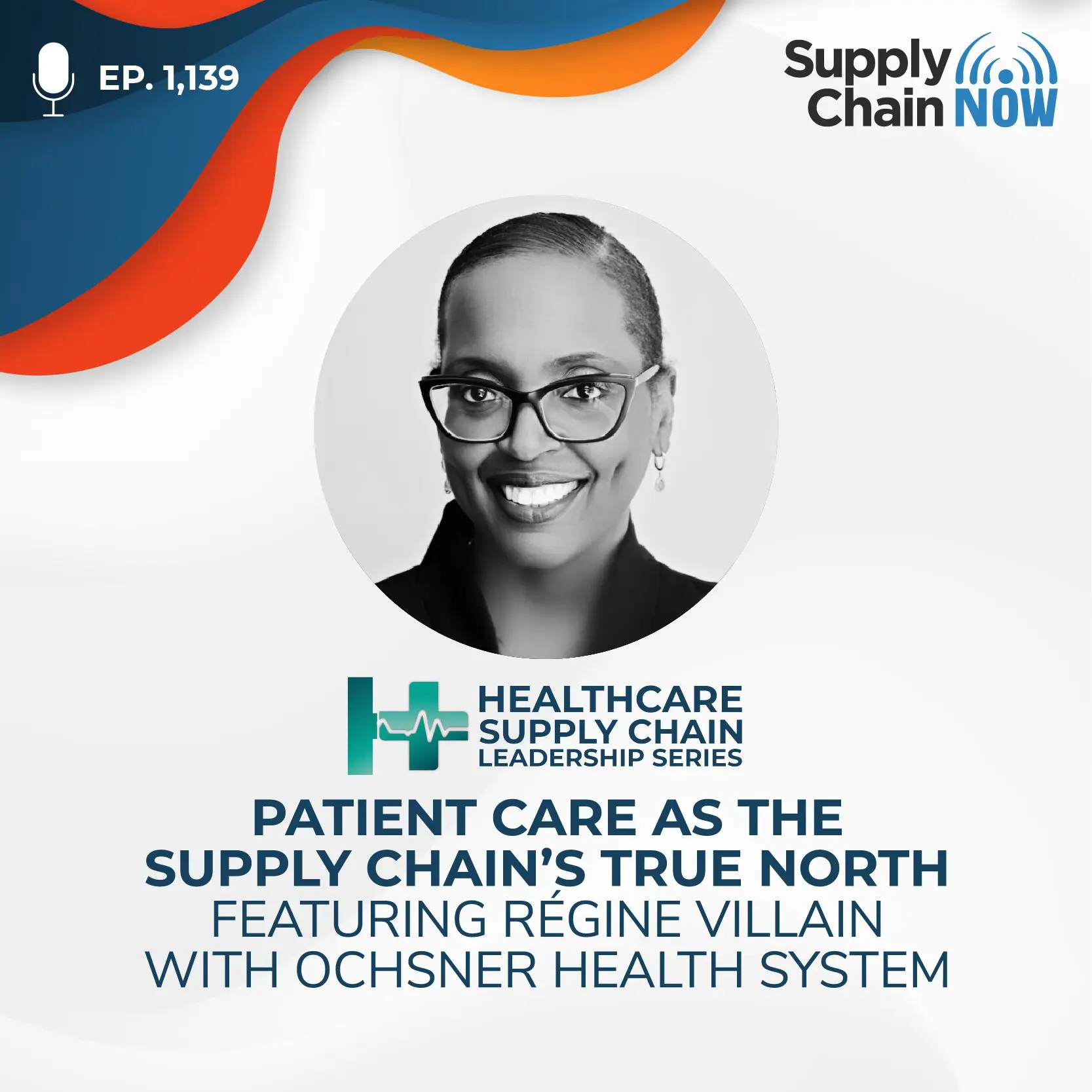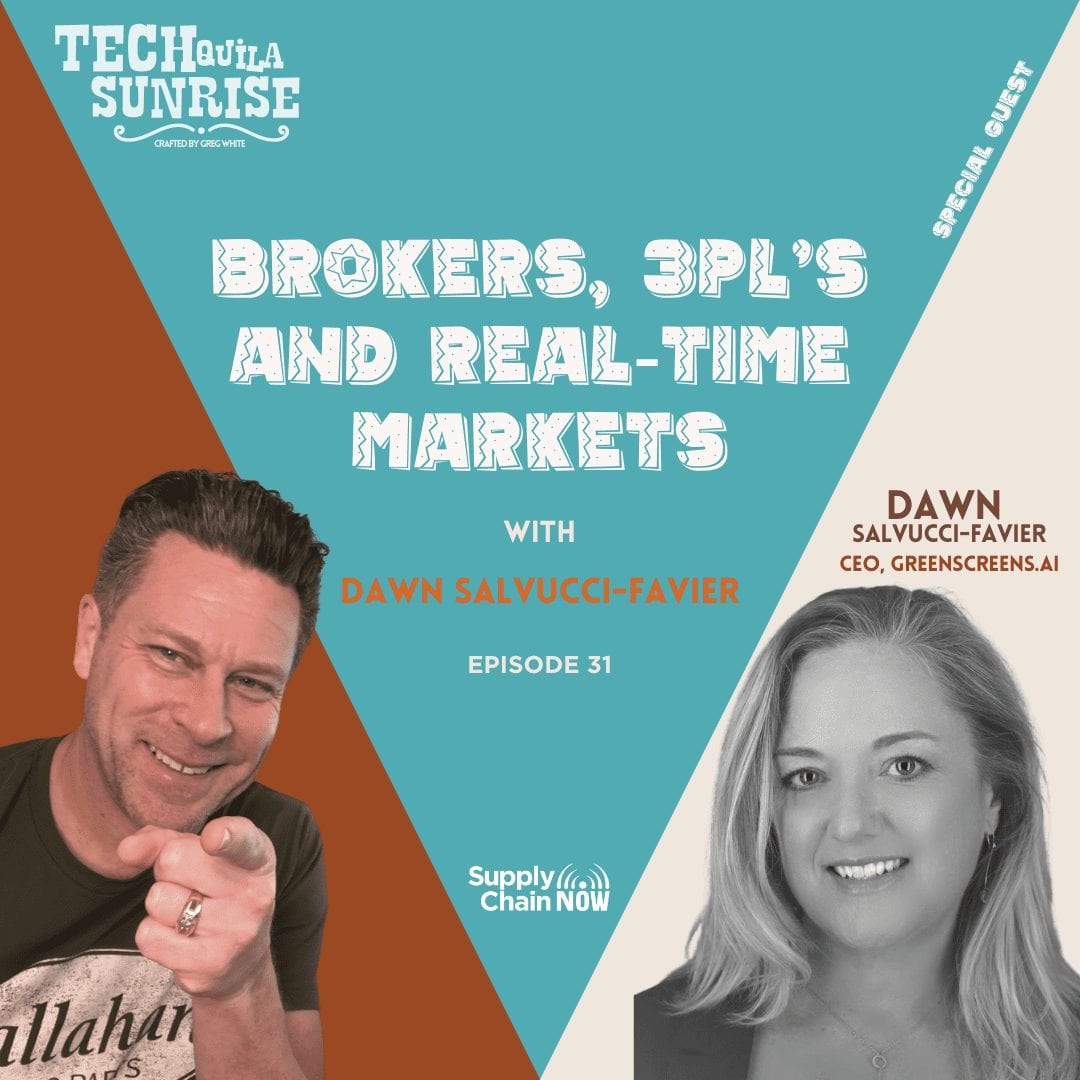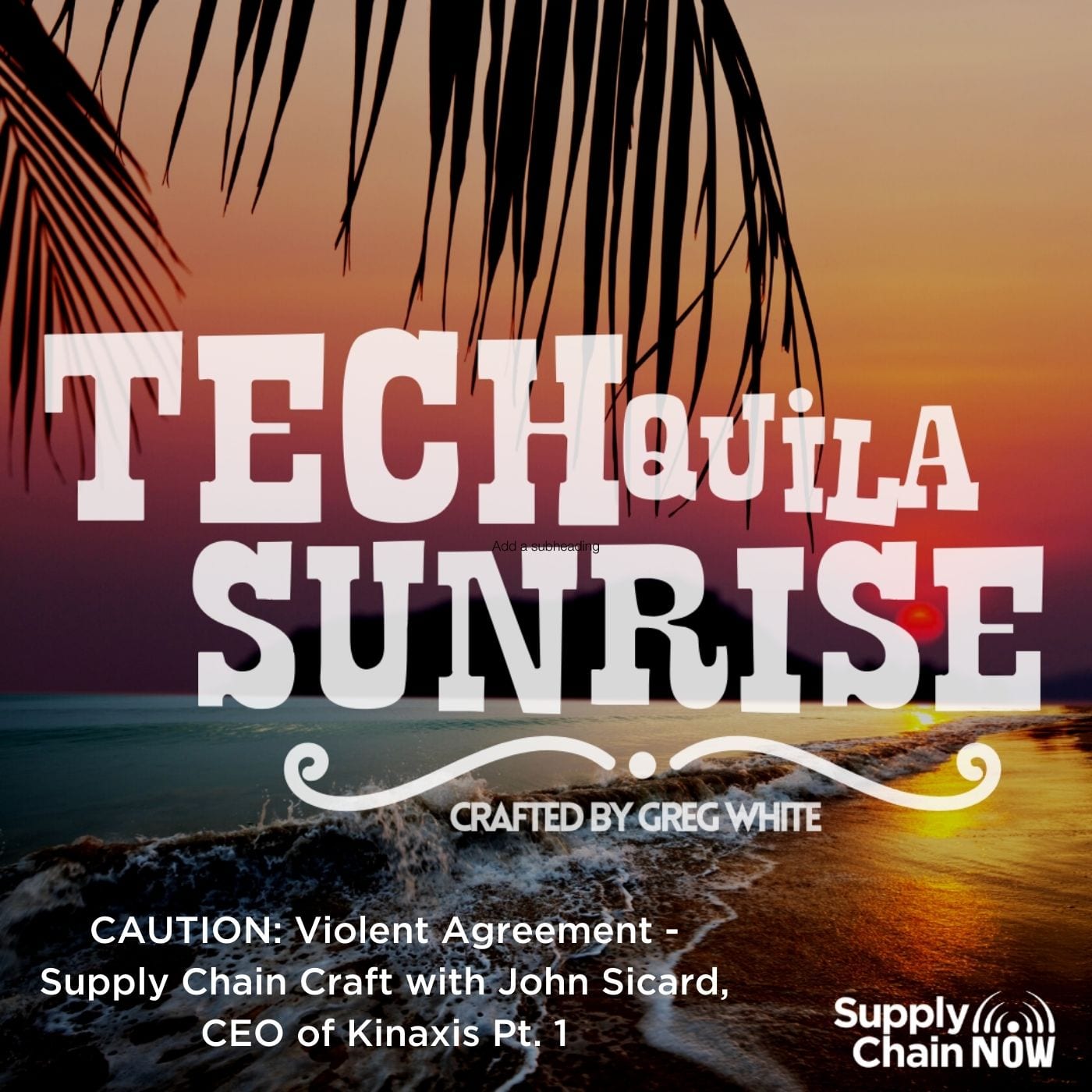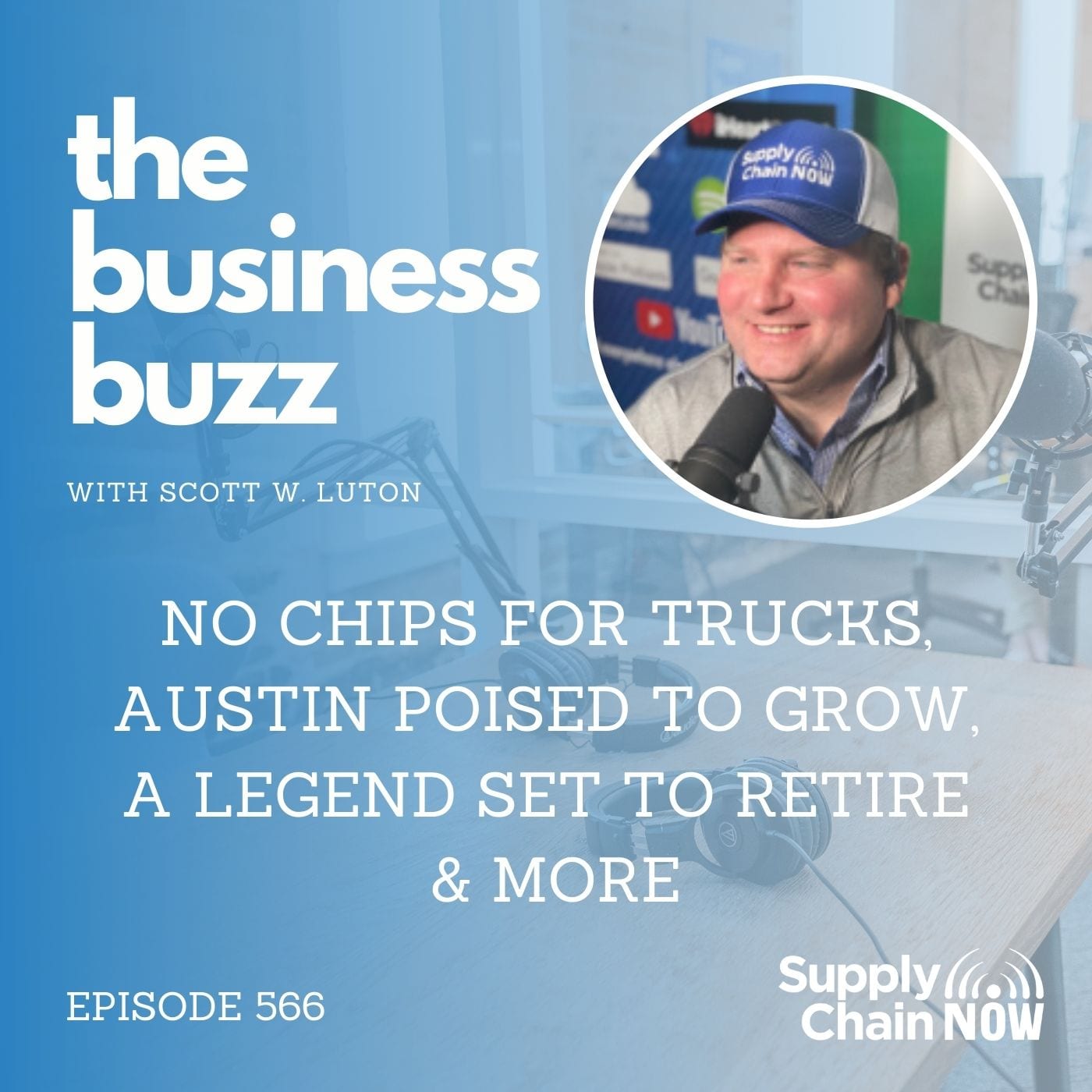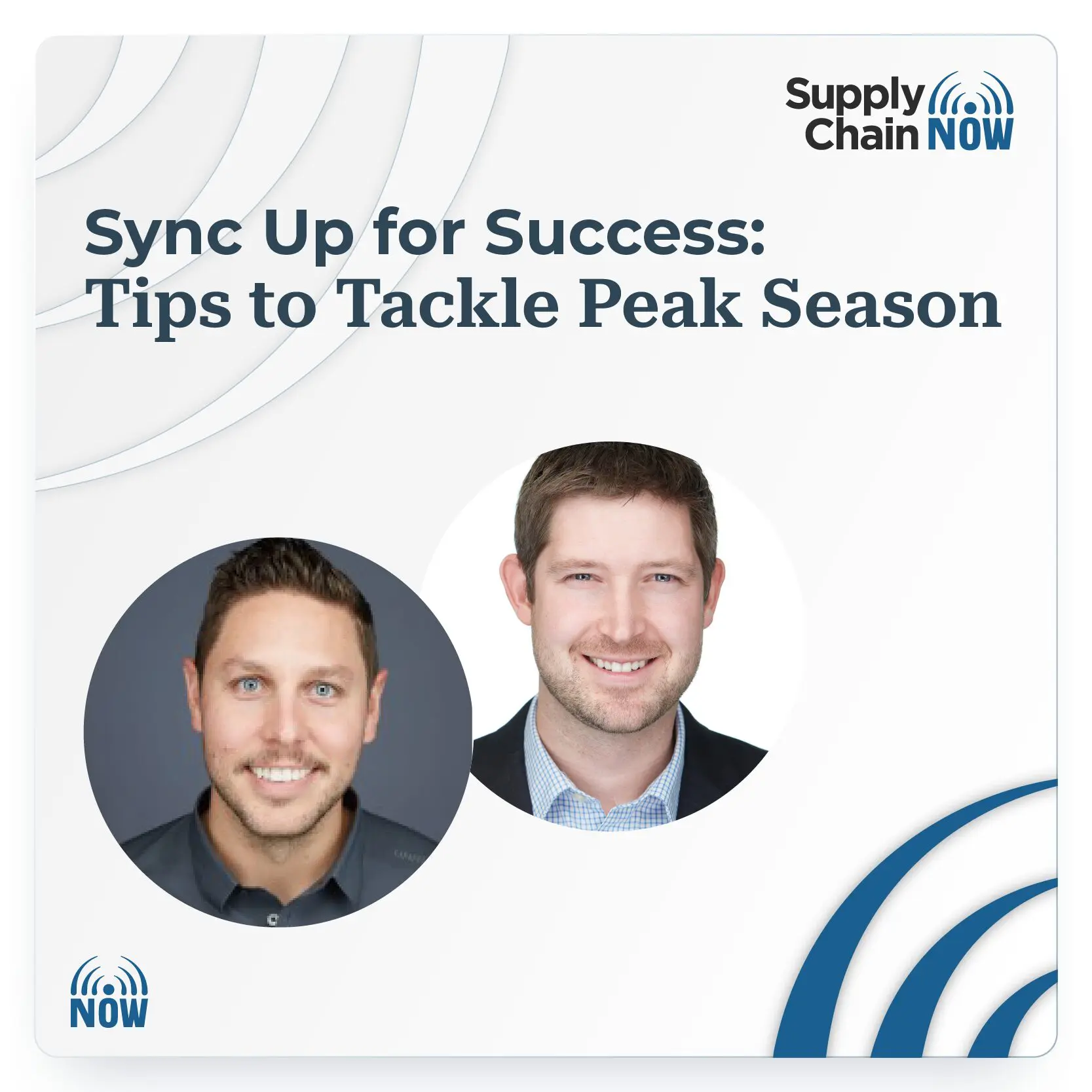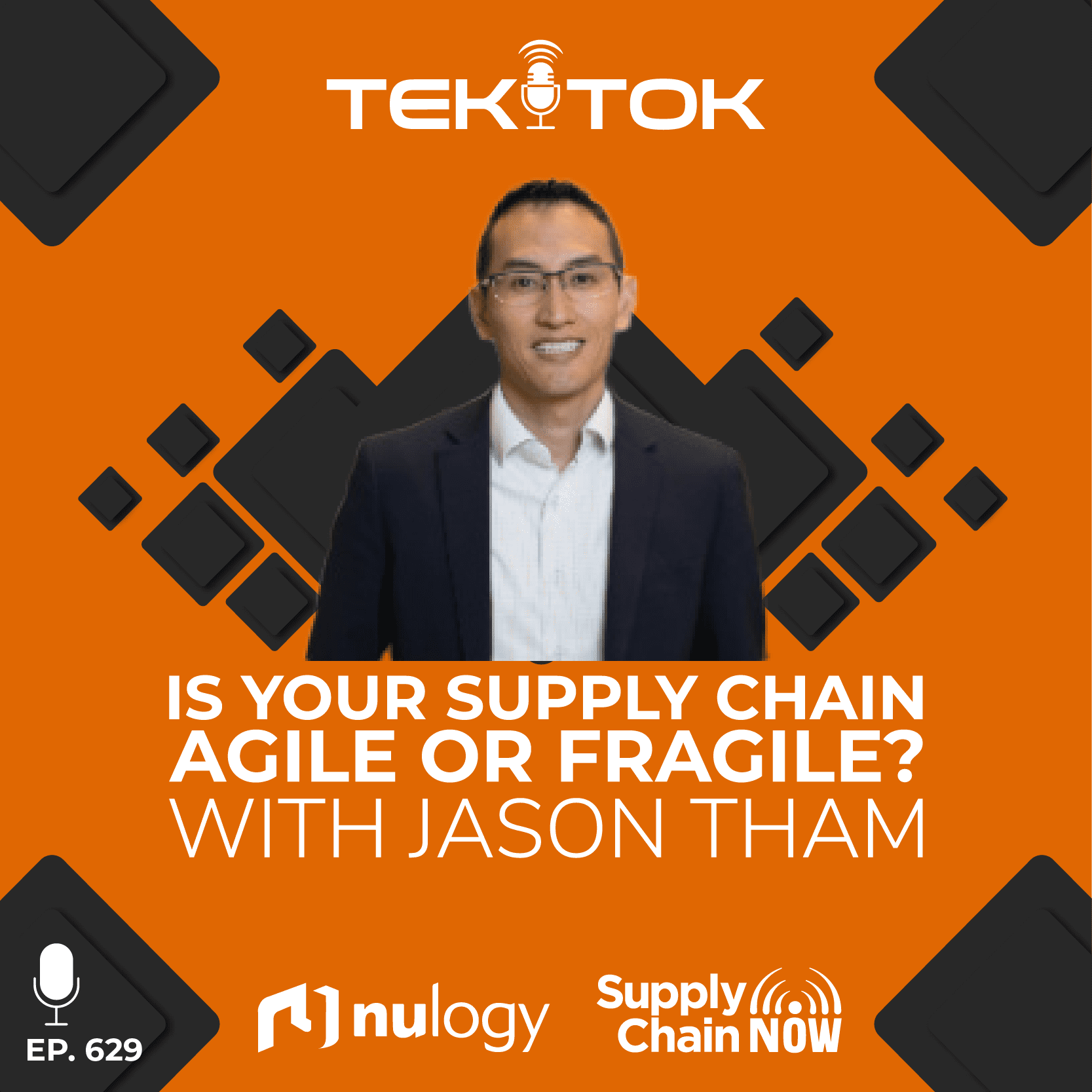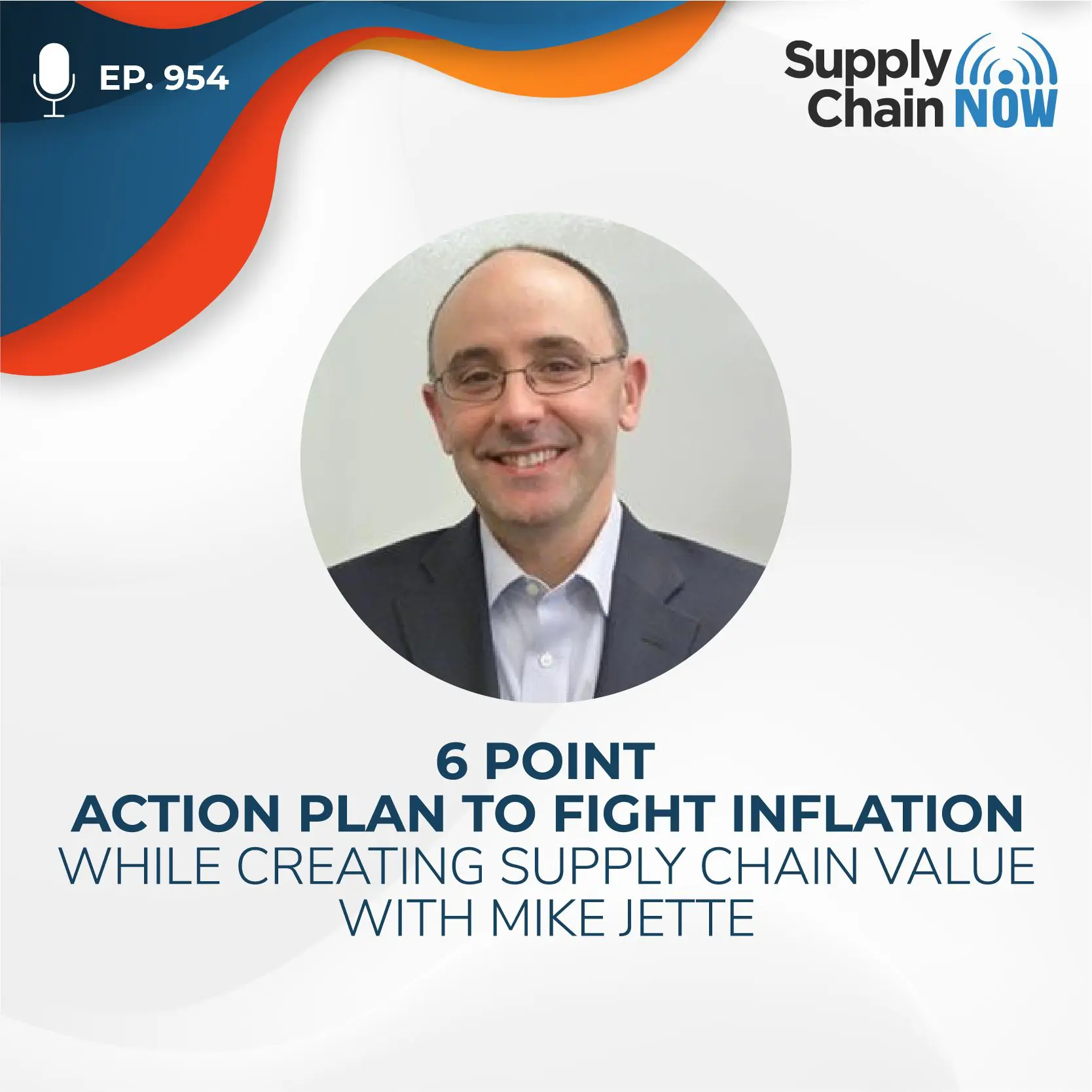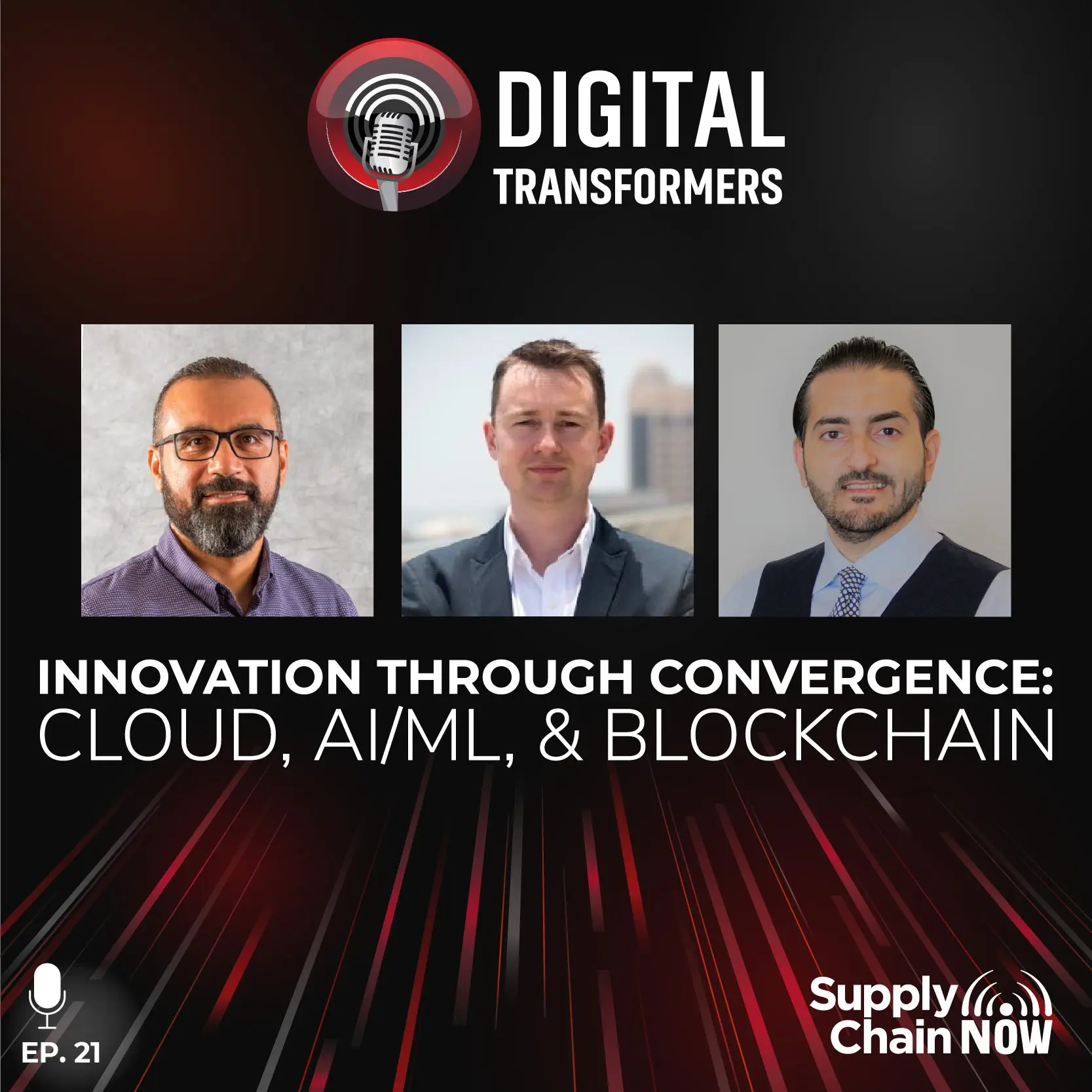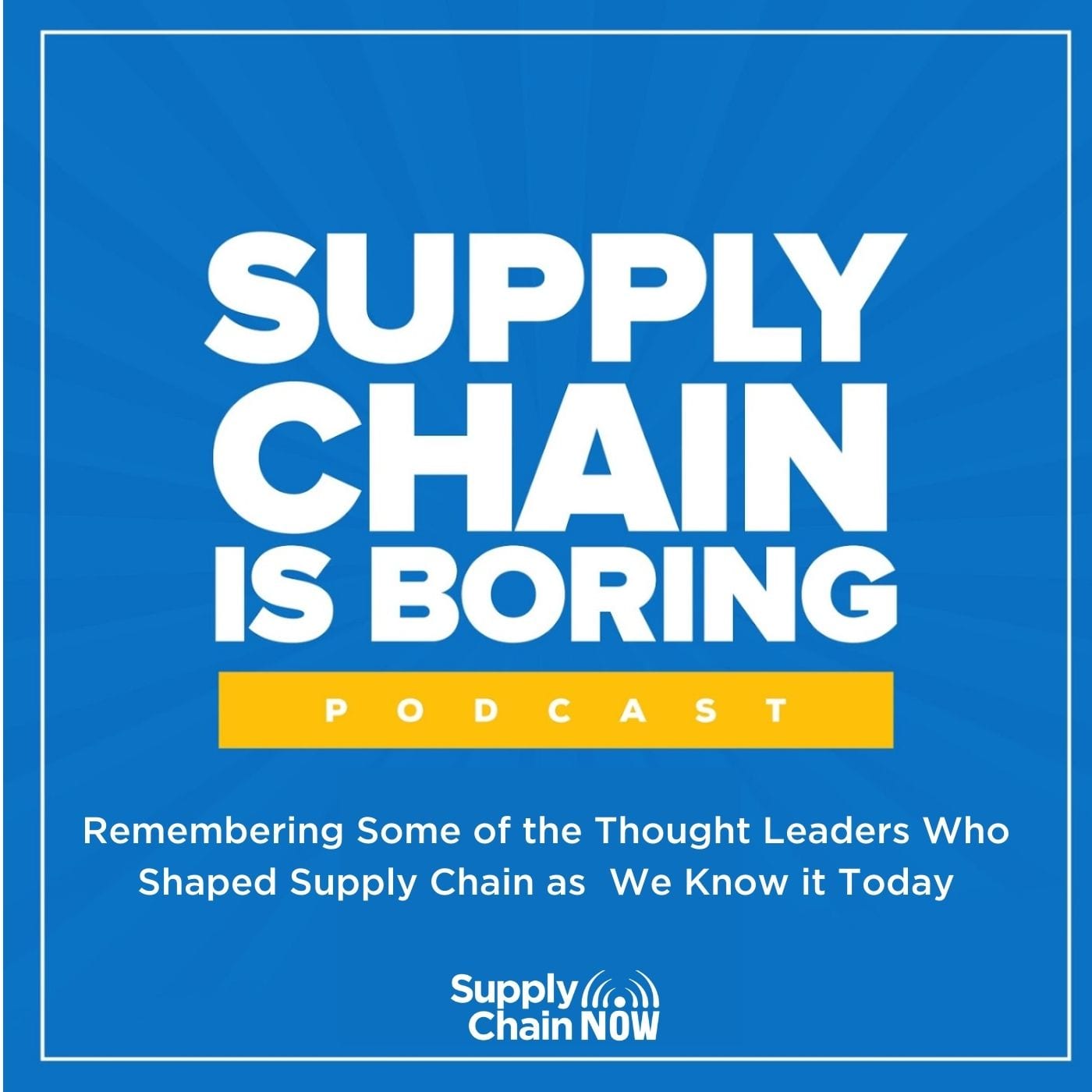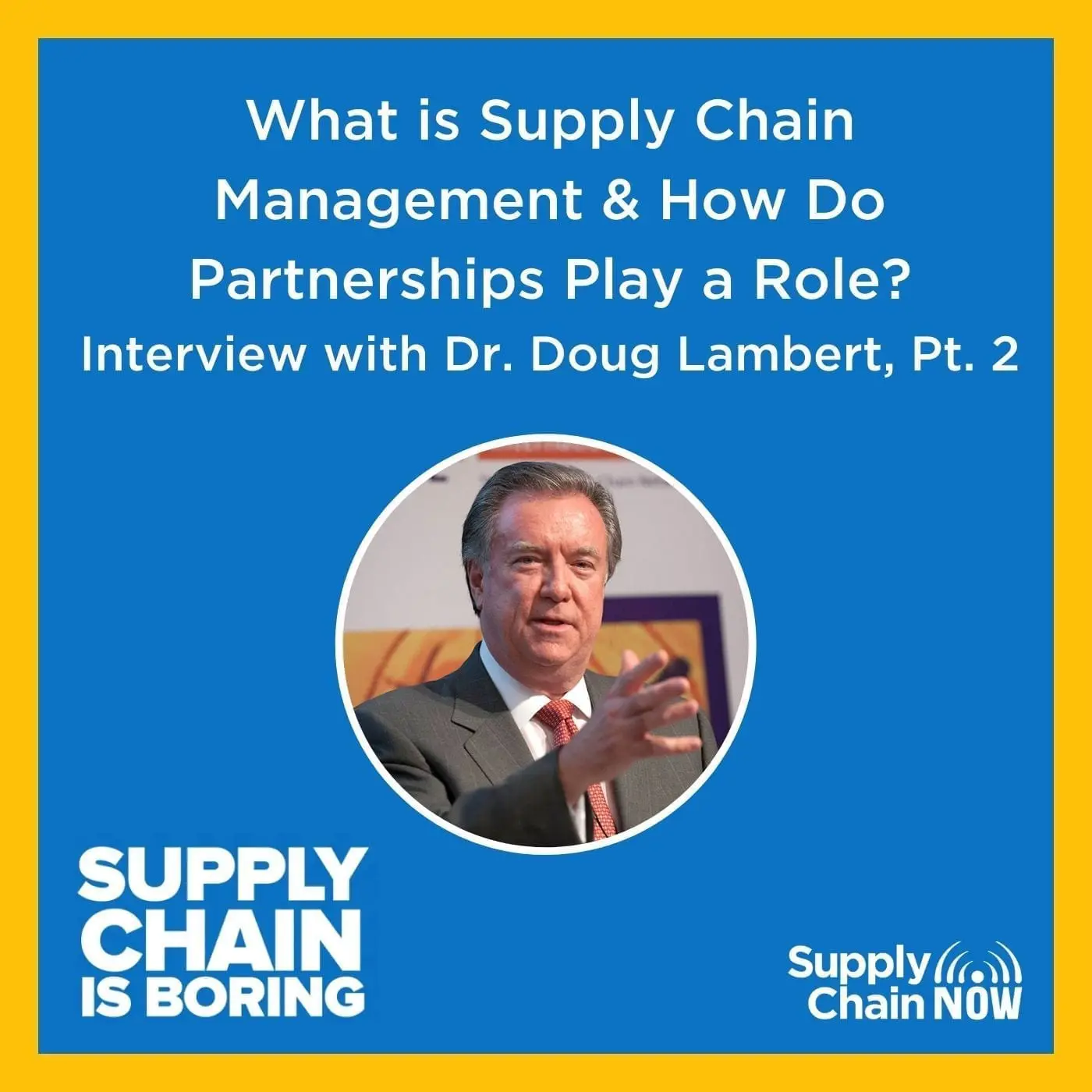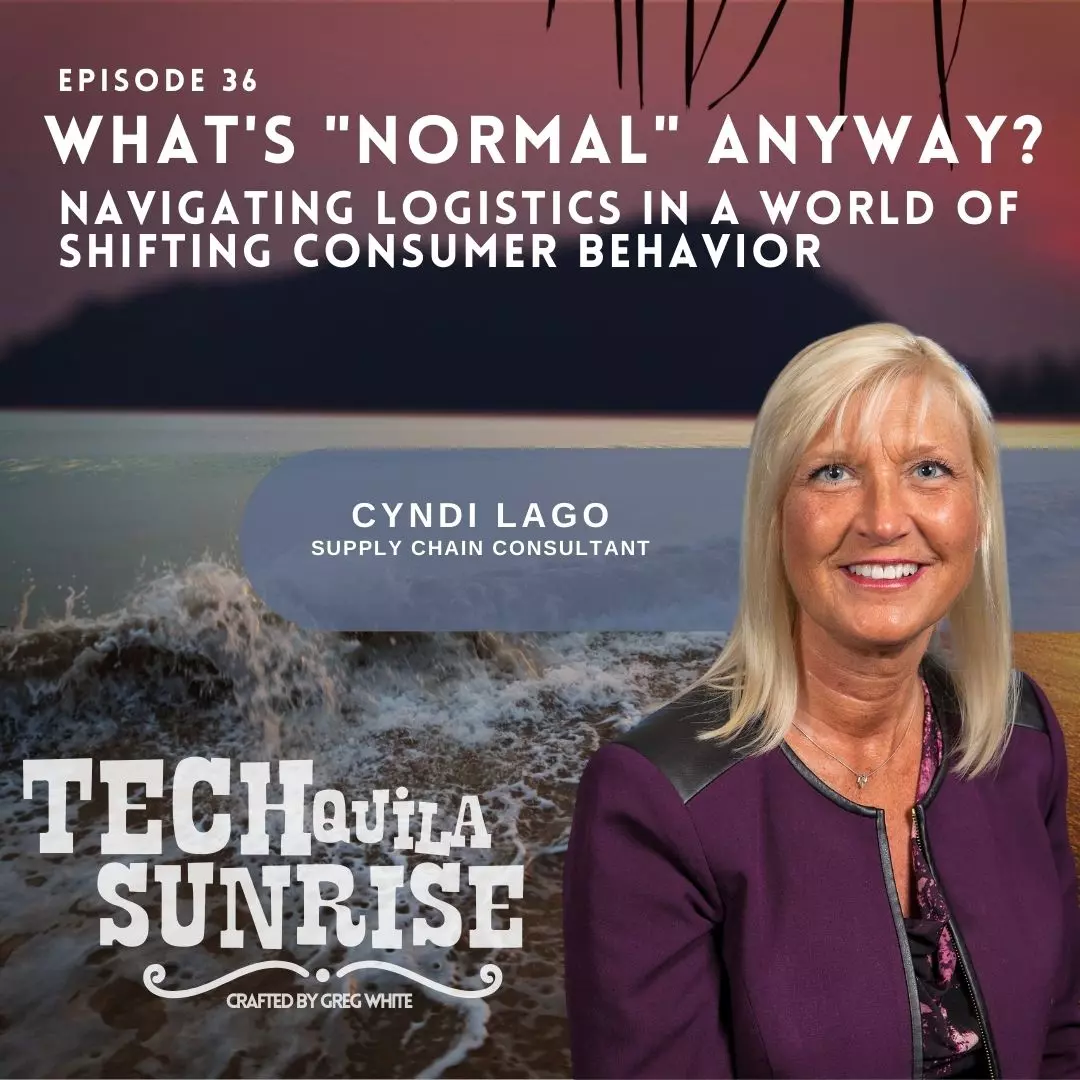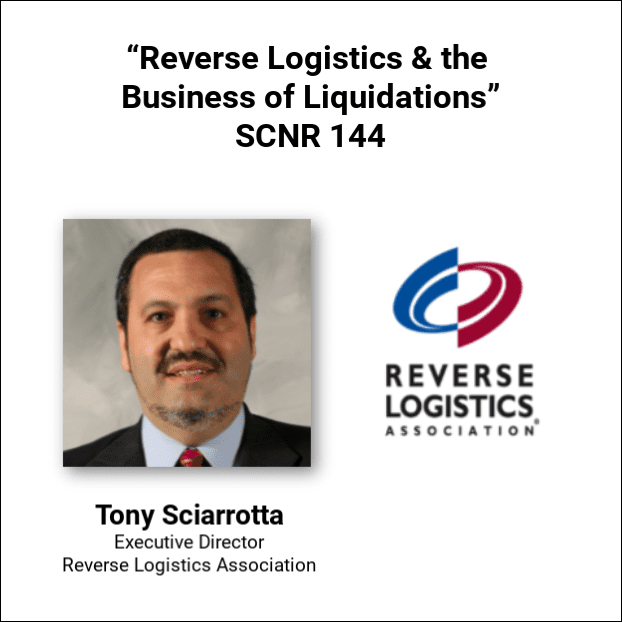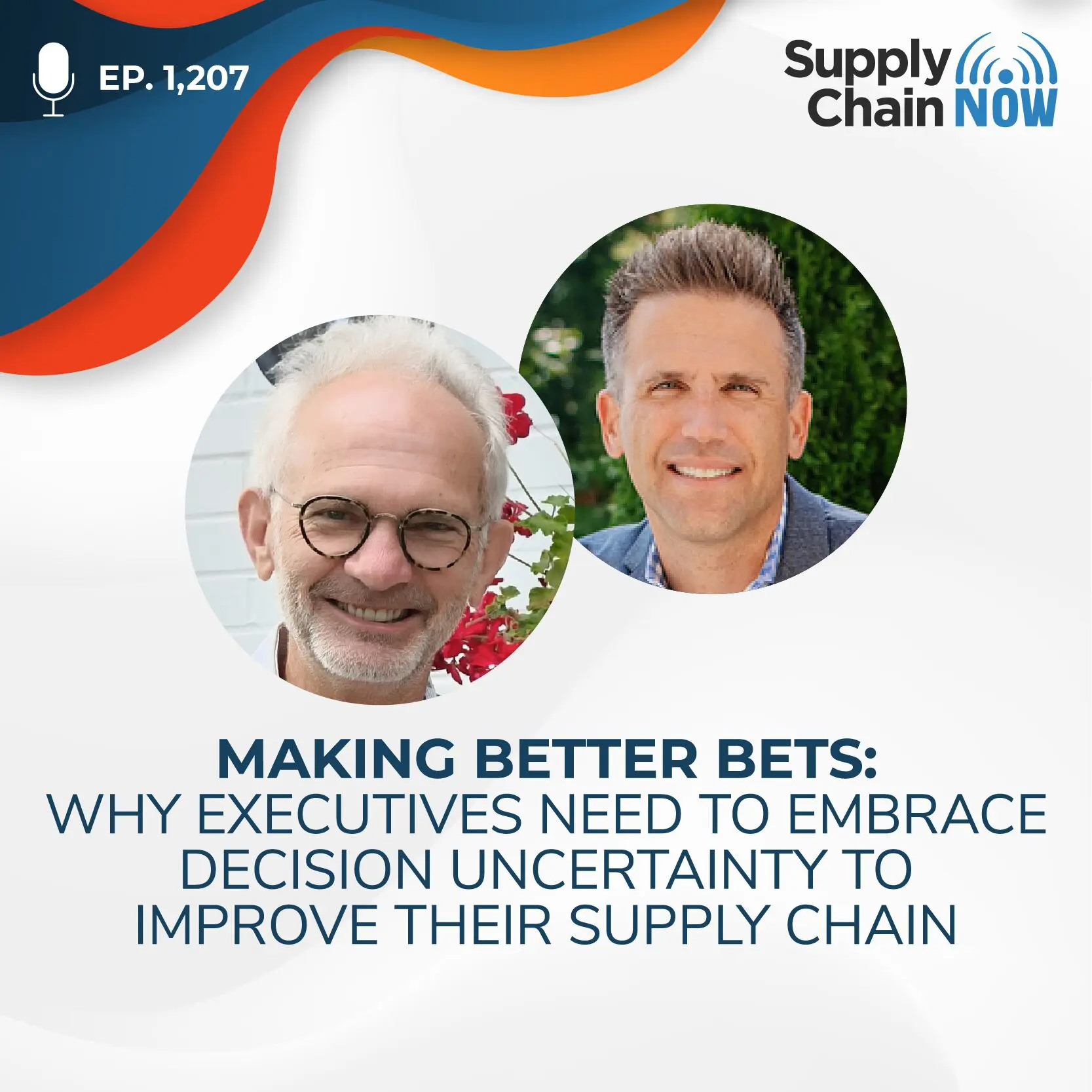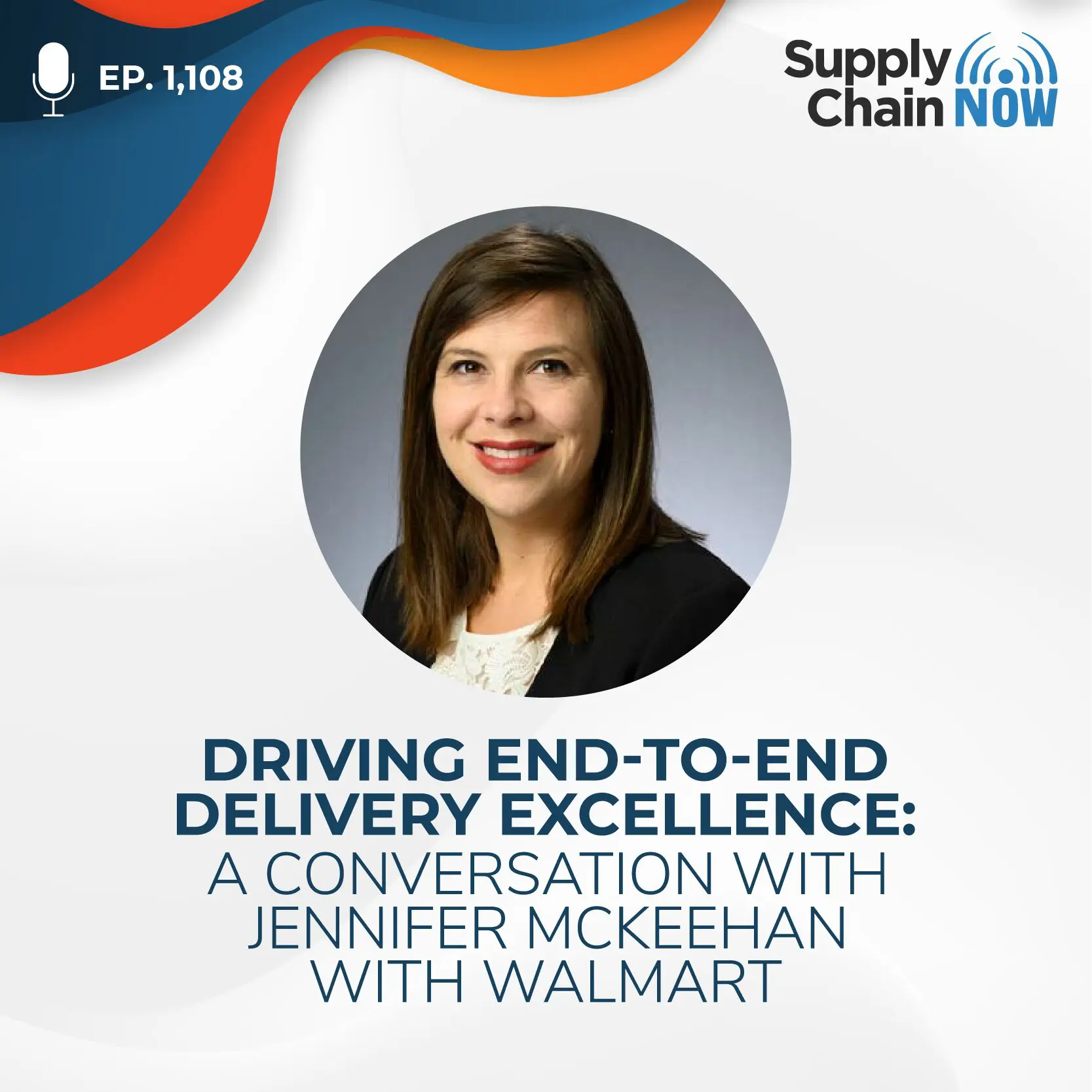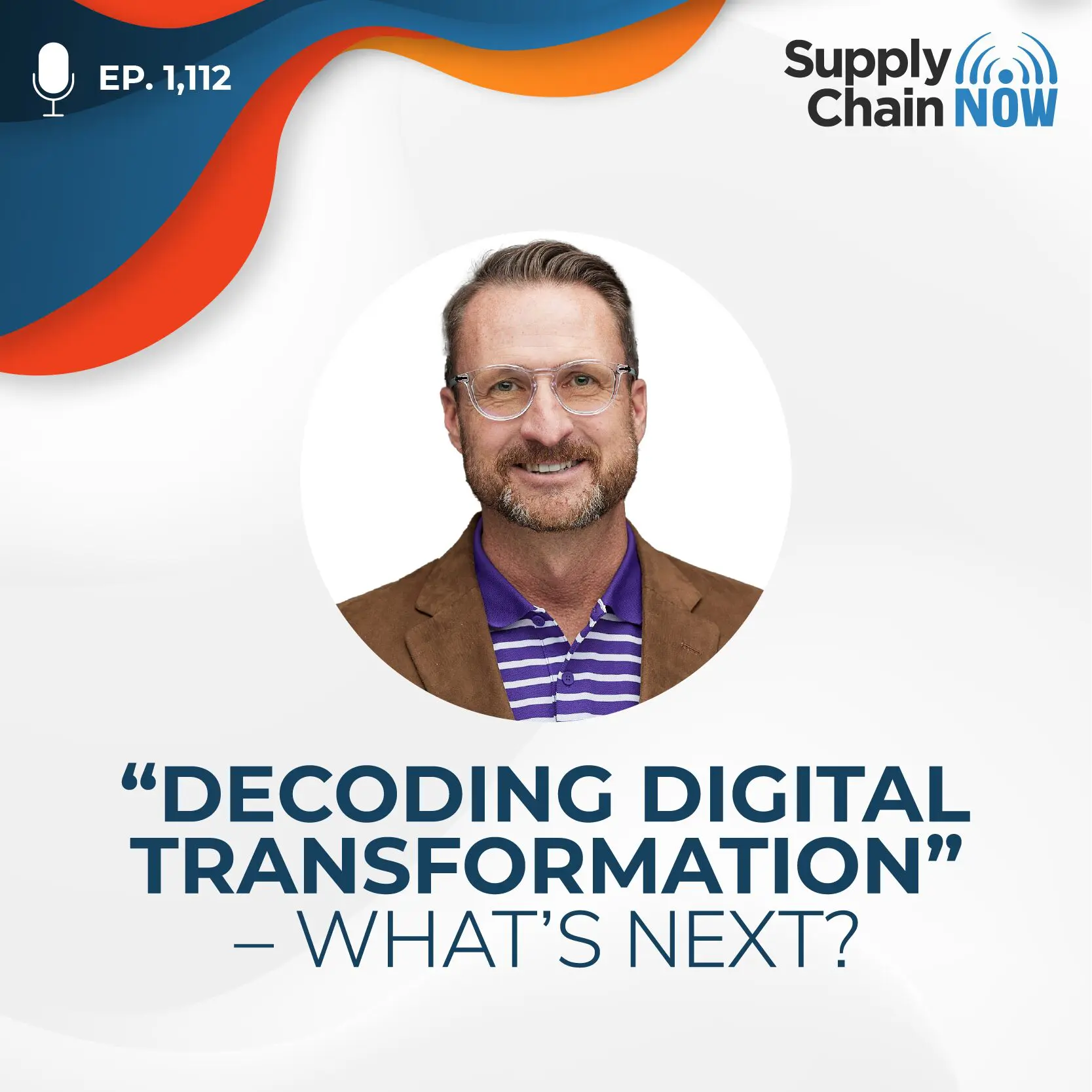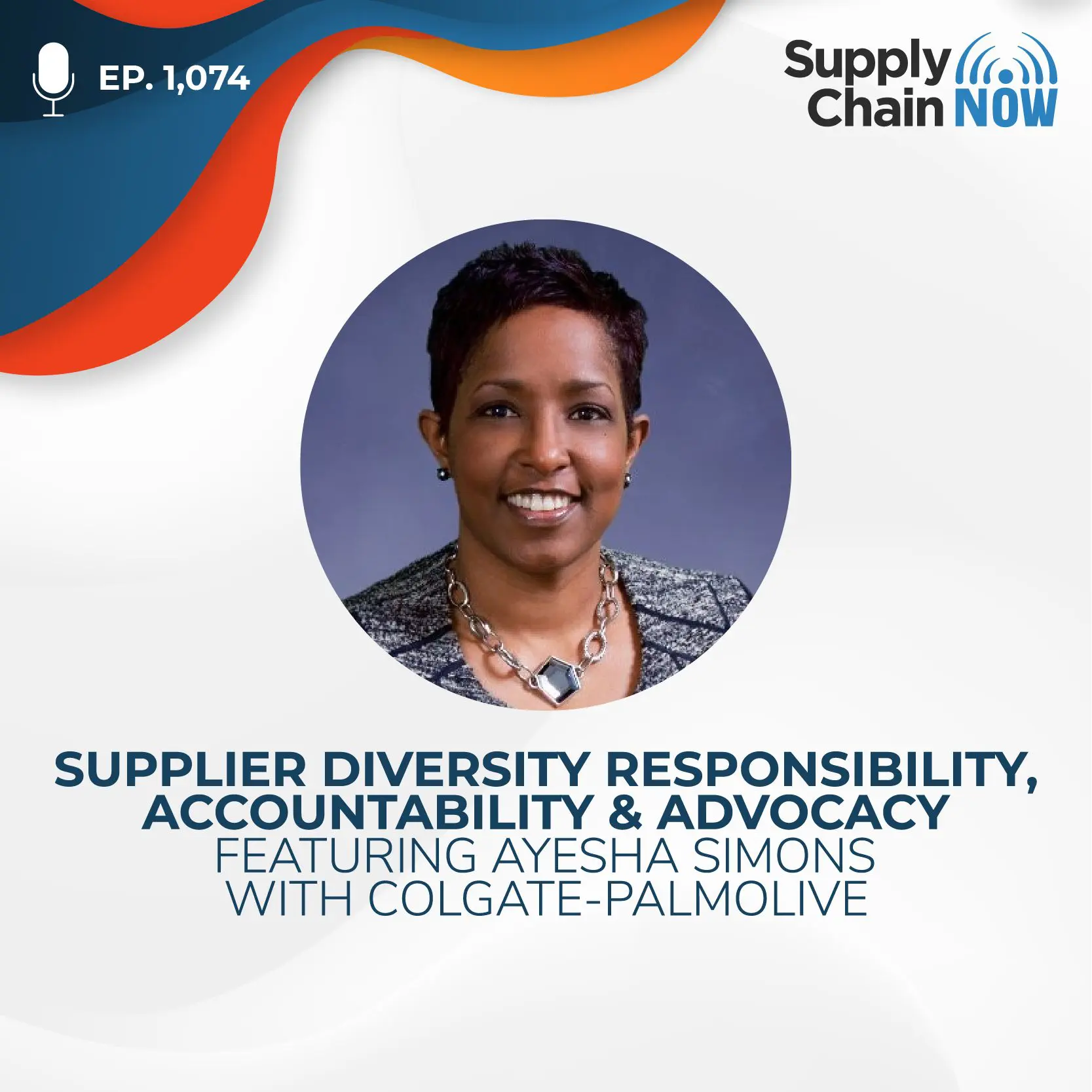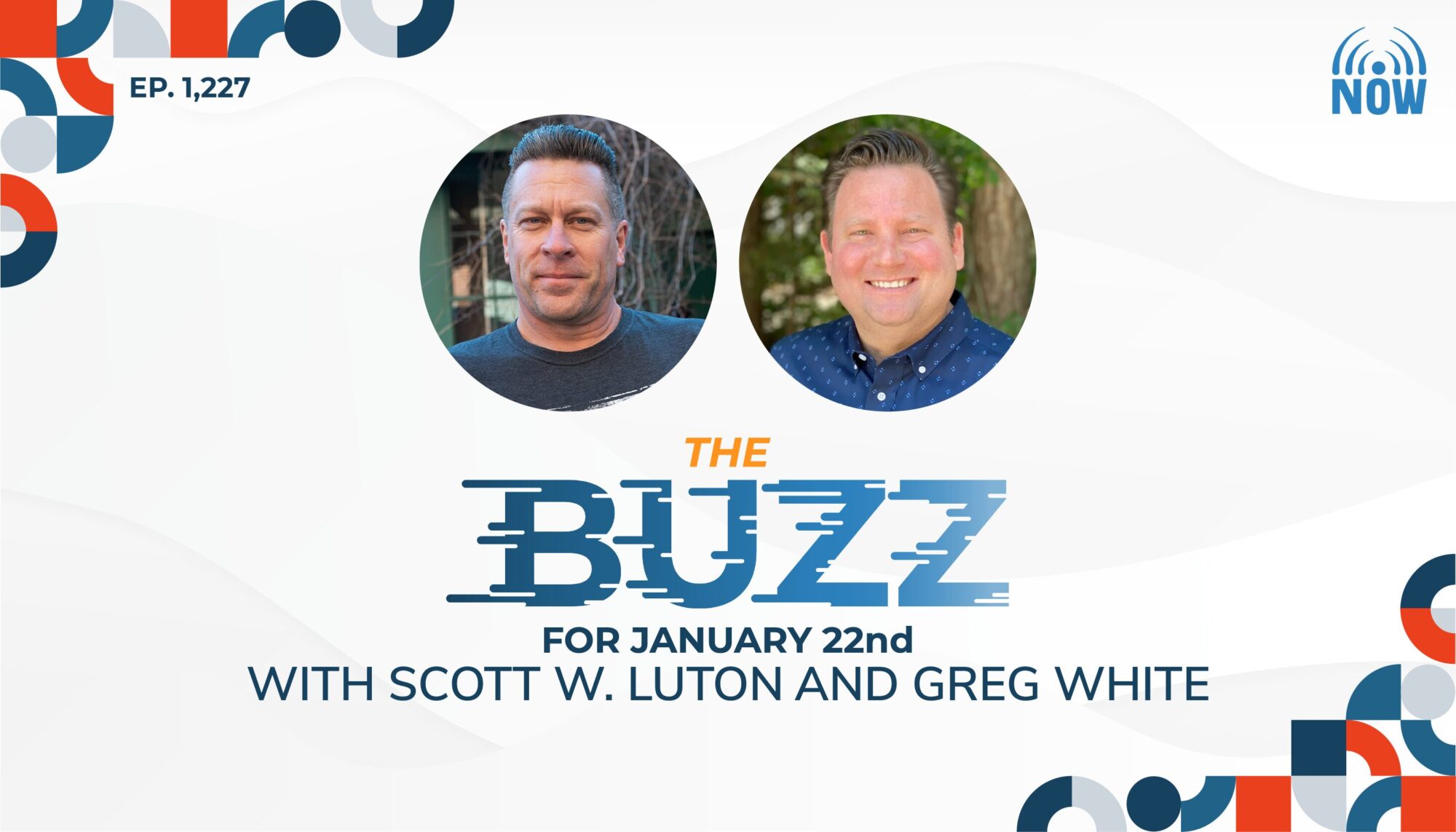
I can tell you from my days in manufacturing, if you throw out lead time and don't care about it, you'll have Honda White Coats in your office looking over your shoulders as you get stuff done.
-Scott Luton
Episode Summary
The Buzz is Supply Chain Now’s regular Monday livestream, held at 12 noon ET each week. This show focuses on some of the leading stories from global supply chain and global business, always with special guests – the most important of which is the live audience!
In this week’s episode of The Buzz, hosts Scott Luton and Greg White discuss some of the top news stories and trends in supply chain and industry today. Listen in and learn more about:
- The top concerns for US and Global CEOs as we go into 2024
- The extra-spicy experiential food & beverage trends for 2024
- What consumer product shortages will shoppers notice on (empty) shelves?
- EV news from Ford, and if they’re meeting their ambitious sales expectations
Episode Transcript
Intro/Outro (00:03):
Welcome to Supply Chain. Now the voice of global supply chain supply chain now focuses on the best in the business for our worldwide audience, the people, the technologies, the best practices, and today’s critical issues, the challenges and opportunities. Stay tuned to hear from Those Making Global Business Happen right here on supply chain now.
Scott Luton (00:32):
Hey, good morning, good afternoon, good evening, wherever you may be. Scott Luton, Greg White with you here on Supply Chain. Now welcome to today’s live stream, Gregory. How you doing today? You
Greg White (00:42):
Know what? I’m doing pretty darn well. How are you doing?
Scott Luton (00:46):
I’m doing great, man. I’m really excited about the show. Congrats to you and the Chiefs. Thank
Greg White (00:50):
You.
Scott Luton (00:51):
The kingdom, I guess, as y’all call it. Big win last night.
Greg White (00:55):
Yep. Big win. Feel sorry for the bills until their fans throw snowballs at my quarterback and then I don’t feel so sorry for ’em anymore. But yeah, that’s the third time out of four meetings that we have beat the bills in the playoffs. Crazy
Scott Luton (01:11):
Man. What a rivalry. But I guess for it to be a rivalry, I think the Chiefs are three and oh against those bills, right? Well,
Greg White (01:18):
It is a rivalry. They stomp our guts out during the regular season every year. So I would say it is a very friendly rivalry, have a lot of respect for their players and their team and their coach, and even some of their fans except for those snowballs.
Scott Luton (01:34):
NFL aside. Greg, we got a lot to get into here today, right? Turns
Greg White (01:38):
Out we’ve been busy in this supply chain game, haven’t we?
Scott Luton (01:41):
Man, you ain’t lying. So whether you’re a Chiefs fan, a Bills fan, whether you’re a football fan or not, stick with us. We got a lot to get into here today across global business, and y’all should come to expect it, right? Every Monday at 12 in Eastern Time, Greg and I, sometimes it’s other folks that join us, all focused in on practitioner driven conversation analysis of a variety of news and developments across global business. And we want to hear from you, right? Yeah. So drop your take throughout the conversation in the chat and we’ll weave that in. And if you’re listening to the podcast replay, which usually dropped on Fridays, hey, come join us live. You can join us on LinkedIn, YouTube, or some other social media channel of your choosing
Greg White (02:25):
Even on Twitch while you’re gaming.
Scott Luton (02:28):
That’s right. Come on, come on. And we ask one thing of you though, and Greg, that thing is if y’all dig the show, if you enjoy what you hear, hey, share it with a friend or your social network on behalf of our hardest working team and at least supply chain, media, business, global media. Hey, we appreciate it, Greg. Simple ask, isn’t it?
Greg White (02:50):
Introduce your friends who might be missing out on the number one podcast and supply chain show in the world to join us.
Scott Luton (02:58):
That’s right. And
Greg White (02:59):
Don’t forget to subscribe. I’ve always wanted to do this, Scott, don’t forget to subscribe. Hit that subscribe button in that bell on YouTube.
Scott Luton (03:06):
We’re living our best life today.
Greg White (03:08):
We’re still doing it. YouTubers are quitting by the droves. Have you seen this? Just tons of people just tired of the grind apparently. And then of course you sent an article around the company about the incredible shrinking podcast industry who thought we’d ever be talking about that.
Scott Luton (03:25):
Yeah, no kidding.
Greg White (03:26):
So it’s work people. I mean, don’t doubt it. This is work and we still here.
Scott Luton (03:34):
That’s right. Take that to the bank. Death taxes and supply chain now, baby. And not just, we’re here, we’re thriving folks. And that’s all testament to our global audience out there that jumps into the conversation with us. Okay, so Greg, we’re going to try to work in, we’ve got Andre and t squared and Amanda, of course, Catherine, the whole gang. Awesome. Behind the scenes we’ll work in those comments. But for starters, Greg, let’s offer up some resources for our global fam out there. And we’re going to start, as always with that said newsletter that we dropped over the weekend. Now this one was a really good one, Greg. We touched on Chinese economic updates. We talk a lot about our economy. Y’all should check out what’s going on in China. Bank of America spending billions on their digital transformation. We’ve included a story, Greg, about an AI chatbot that had a little issue and they began to drop a few four letter words as perhaps showing a little human-like frustration all in the latest edition of With that said, Greg, did you check it out?
Greg White (04:38):
That’s pretty funny. Yeah, I’m going to have to check that one out. I missed that this weekend. It was a very busy weekend.
Scott Luton (04:43):
I get it. So check out. With that said, perspectives from across the business world. And of course as always, somewhere our own recent and upcoming shows. And by the way, shout out to Bill Huber, former chief financial officer in the construction industry. He shared this gorgeous picture y’all see there of Lake Greenwood in South Carolina. I think that’s sunrise. And it was cold. He said, I think 14 degrees or something. Greg, that’s chilly. I don’t care where you are, huh?
Greg White (05:11):
Yeah, I try to never see 14 degrees. That’s why I moved to the south. And you would think that it would work.
Scott Luton (05:16):
That’s right.
Greg White (05:18):
Global warming.
Scott Luton (05:19):
Oh man, I’m with you. Alright, so let’s get into the first story. I really like our starting point here today. I think this is going to really offer up some context throughout the four stories that we’re going to work our way through. So I want to start today with what CEOs are thinking. So Greg, the conference board published research recently as they had surveyed over 1200 global C-suite executives, including 630 CEOs on a variety of topics. So here’s a few key takeaways, and I can’t wait to get Greg’s take on the takeaways. So the top two external concerns for both US and global CEOs, you might’ve guessed in economic recession is number one, and inflation is number two, both for us and global CEOs for short-term profit growth, US and global CEOs, collectively, their number one priority is to introduce new products and services, other priorities for short-term growth is increasing sales via marketing, entering new markets.
(06:18):
And as you might expect, investing in technology now for longer term revenue growth. US and global CEOs had the same top five growth strategies that they’re going to be focused on over the next three to five years. Here’s the top three. Number one, invest in innovation. Number two, new lines of business. And number three, digital transformation including ai. The top internal priority is also the same for US and global CEOs. It’s talent, baby, attracting and retaining talent. Greg, your thoughts, and there’s a lot more to that. We’re going to drop link to that survey. Your thoughts on that data.
Greg White (06:55):
It hearkens back to, I don’t remember when we used this term, eighties or nineties, maybe stagflation where the economy stagnates and yet we have inflation. And I think that’s sort of what the CEOs are referring to, but to the point that they made in the article, they don’t know which or if either of those things are going to happen. I mean, obviously inflation continues. People keep saying inflation is coming down. That doesn’t mean we don’t still have inflation. It means that the rate of inflation is coming closer to the desired 2% per year, but it’s still a good ways away. And recession is something we’ve been talking about it feels like for three years. But you do have to legitimately ask the question, how long can this false economy continue an economy that was built on 3.4 trillion of injected capital? And now all of us, at least in America, are done bending through our fellow taxpayers money to buy things.
(07:55):
And you can see it. One of the leading indicators I use, not an economist by the way, let me reiterate that, but right as often as they are, which is almost never one of the leading indicators that I look at is luxury goods. And you’re starting to see those things that during 21 and 22 were really popular. Luxury goods, fashion goods like Bayberry and brands like that. They’re starting to see sales come down. We’re going to talk about EVs, but cars in general are starting to come available again and again, I’m looking at the top of the market, looking at the Range rovers and things like that to see what’s going on. And they’re starting to pile up an inventory at dealerships. So people are starting pairing back. I think I saw a business insider article that instead of inconspicuous consumption, which is such a joke, impossible to be inconspicuous wearing anything Balenciaga or Balmain or Bayberry or Gucci.
(08:50):
I mean they’re intentionally conspicuous, right? And everywhere. But now savings saving is becoming really popular and prominent. And I think that is a good indicator that people are starting to come to reality, starting to face reality when it comes to the economy. And I think it’s a good thing. We’ve been talking about it for years, always have a backup plan just in case recession hits. Because when a recession hits, you want to have cash on hand, not just to save yourself, but also because there are so many opportunities when an economy turns down so many opportunities to invest. And I mean, I think that what these CEOs are investing in is absolutely critical and it’s going to change the shape of that whole discussion around people because AI will replace people. We can quit pretending that it’s not going to, but I think it will most likely replace the 10,000 people who are leaving the workforce every single day.
(09:48):
Largely baby boomers, I can tell you for certain that even the oldest of Gen Xers are not old enough to retire yet. So they’re not leaving the workforce and they are much more adoptive of technology. And of course our kids, gen Y and Gen Z, they were brought up on technology even more significantly than we were. So we’re moving into a culture where working alongside technology is not just accepted, it’s expected. So all of this innovation, presumably that innovation is technology, and of course digital transformation involves technology. And let us reiterate, Scott, that moving from paper to a spreadsheet that’s not digital transformation, moving from a spreadsheet to a process driven technology that is digital transformation.
Scott Luton (10:38):
That’s right, Greg, the only thing you missed is at the end, welcome to my masterclass, follow me for more all things technology and economy. And by the way, Andre says stagflation to your point, which you started on is the pits. I agree with you Andre. And speaking of inflation, Greg, here’s one sign I’m looking for. So you’re on the highfalutin side, luxury goods and cars and stuff. I’m a few weight classes down. I’m walking through my local grocery store looking for treats for my dogs, and I see pig ears at one pig year for dogs is $3 and 50 cents. Now for years, that was under a buck. So that tells you a lot the pig year market. So we’ll see. We’ll keep our finger on the pulse. But folks, hey, check out this. There’s so much great information in this survey. The conference board, by the way, is a nonprofit organization.
(11:27):
Check it out and it’s easy to download. Let us know what we maybe have missed today. Okay, so Greg, now that we’ve covered two of the critical subjects of our day, what CEOs are thinking and the pig year market, I think we can move right along to the second article here today. Now we’ll get to this image in a second. Lemme tee this thing up. We’ll get Greg’s thoughts and then we’ll talk about delicious drumsticks. Oh man. Okay. We mentioned the common themes amongst these four stories. This next story reflects some of these CEO priorities from the first story as it applies to the food and beverage industry. Neat interview here by our friends at Retail Brew who talked to Mike Van Houghton. So he’s with Nestle USA, and they spoke to him about FNB trends to watch in 2024. Van Houten says innovation is back.
(12:12):
The pandemic ushered in age, as we all know of super skew rationalization as global complexity had many companies leveraging the power of focus to drill in on core products. But that mindset is changing rapidly. Van Houten points internally to the 50% rise in innovation projects at Nestle alone. As one of the examples of this changing mindset, many of which in terms of these innovation projects will lead to new products and new tasty flavors. Speaking of tasty flavors, Greg Spice is still nice and that trend is expected. That trend meaning lots of spice and heat on all kinds of things, from chips to ice creams, to who knows, maybe even pig ears, that trend is expected to expand in 2024. And all you got to do, Greg, is walk the chip aisle in your local grocery store. Besides the price points, man, $10 bags of chips.
(13:03):
It’s crazy. But that extra spice man, it’s everywhere. It’s like on half the bags. This last little piece kind of surprised me, just a smidge. Van Houghton says that expect F and B leaders to find ways to ensure seamlessness between the in-store and the online grocery buying experience and to make sure customers can get what they want when they want it and how they want it. Reducing that supply chain. And omnichannel friction is basically public enemy number one. He’s saying, he says, Nestle, get this, Greg Nestle is quote, we’re just at the beginning of this move to eliminate friction and help consumers buy wherever they want to buy. As I mentioned, that surprises me a smidge. Your thoughts, Greg?
Greg White (13:43):
Yeah, well, considering the history, it is a long history of e-commerce. That doesn’t particularly surprise me, but it did back then when they did it. And part of the reason that you separate e-commerce and in-store was because of bonus structures and compensation structures because they built a whole organization around it. Nobody could really contemplate that. We could, as we do now, fulfill e-comm from a Kroger store, let’s say, right? Which is exactly what they do today. That is exactly what they do today. So there’s a sort of a paradigm shift mentally now that they’re like, oh wow, I wonder if anybody ever thought of just making it all sort of one experience. I got to tell you, I don’t know if you’ve ever shopped Kroger online, it’s very much like that. Walmart too is very much like that. I mean, you can get same day, two hour deliveries from I think both of them, even Costco has a same day delivery.
(14:41):
So that’s a bit of a mystery to me, but I can see if you’re in it every day and your job isn’t to sit back and observe, does this really make sense? And also because you have the of compensation methodologies within the company, which is usually the cause of inefficiency in so many companies. I can see why it feels like a revelation and a new finding. But the truth is it could have always been that way. There’s nothing inherent in the process or technology that limited it as to innovation. I’ve been a merchant in retail. My job was to find new products and that sort of thing. I hope we don’t get back to that sort of paralyzing number of products like spicy drumsticks or bacon flavored spicy drumsticks or something like that where it just paralyzes the consumer. I realized why we went, and we’ve talked about this over and over again, and there are shows we did during the pandemic and shortly thereafter about skew rationalization, which means cutting out your low selling skews.
(15:43):
Why we would want to replace those with more low selling SKUs. I don’t get, especially in this environment which we just discussed, Scott is tending towards recession and already has a ton of inflation. I think a lot of these retailers should be thinking more like ikea, which just announced that they’re going to be lowering their prices again. That now that the mess of the supply chain and all of that disruption has settled some and the price of goods have come back to earth or the price of source materials have come back to earth. So I think they’re missing the boat, which is not unusual for a lot of retailers and ikea, when we talk about innovation. IKEA has the most practical innovation on the planet, and I think more retailers ought to be following that model. Scott, you talk about lowbrow things. These are my sort of lowbrow indicators.
(16:31):
McDonald’s hamburgers, which cost $2 and 39 cents now and are now less than one 10th of a pound, which is what they were before. They’re smaller. Zaxby’s, the big Zack’s snack during the 2009 financial crisis, that was 2 99 and now it’s eight bucks. Wow. So I know inflation accumulates of course, but that’s excessive for three chicken tenders and fries. Yes, I do eat like a 12-year-old people. I think that what they’re looking at is important. I just think that what they land on probably needs to be thought through more. And you know how it’s going to work. It’s going to be fomo. If these guys are doing it, everybody’s going to do it. I mean, Nestle is a big influencer in the industry, so if they say this is the way to go, I think a lot of companies will follow them. What I’d like to do, I’d like to get Rick McDonald on here and talk about what their strategy is at Clorox and whatever he can share with us, he will obviously with his team’s approval, but I’d like to see if there aren’t some alternative strategies out there.
Scott Luton (17:35):
Yes, he’s due. He’s due to be back soon, so stay tuned on that. Folks. Y’all know Rick McDonald, the chief supply chain officer with the Clorox company is one of our favorite guests that stops in from time to time. Okay, so one last comment here. So Nestle and Mike Van Houten, by the way, great interview Mike, wherever you may be. But Nestle’s got like a million brands out there, Greg. I think this was arguable, but one of my favorite Nestle brands besides the Kit Katts are these drumsticks. I can’t have ’em in the house because I can’t eat just one. You know what I mean? Move ’em right along. Greg, this was a site that we haven’t seen. These images were front page and on the news everywhere it seemed like every hour back in the day. We’re going to be talking about what pesky shortages might continue or might pop up in 2024.
(18:21):
This is all based on a great read from our friends at Supply chain Dive. Now, some of the shortages they see in this article continuing throughout the new year, pharmaceuticals and medical supplies, food. In fact, our friends over at Everstream big shout out to Julie Gerdeman and Koro, the whole gang. What they say, agricultural commodity shortages are one of the top supply chain risk in 2024. Battery minerals. Stop me if you’ve heard this a thousand times. Did you know though between 2017 and 2022, global demand for lithium tripled cobalt demand rose a whopping 70%? The story also cites climate change and geopolitical driven shortages as big risks in 2024. Here’s one thing they missed though, Greg. One thing they missed. Electrical power grid components such as transformers. In some cases, certain construction projects have had a choice over the last couple of years, wait for months to get the transformers or other products or redesign the building lead times due to trade tariffs. The pandemic domestic production challenges, of course, a lot higher costs. It used to be a builder could get a transformer in three to four weeks. Now it’s 18 to 24 months. Goodness gracious. Greg, your thoughts here around shortages and the like?
Greg White (19:34):
Yeah, well, it’s kind of back to where we were before. I mean, we do have periodic shortages on certain commodities due to weather or transportation issues or pest infestations, things like that. Food is very general, but some specific foods are not unusual to have that kind of a shortage. There is not a global food shortage, just to be clear people. But there are some select commodities particularly that are in short supply. And of course I am in the middle of a family situation where pharmaceuticals and medical supplies are a big issue. So I’ve experienced that trying to get things for my father and that sort of thing. So I don’t know what it is. I don’t know sort of what causes it or has caused it in this case, but it’s a shortage. It’s not kind of like the transformer thing where they’re behind on production or we had with cars where they fell behind on production.
(20:27):
But interestingly, we’re going to talk about EV sales. I’m trying not to spoil that story, but it kind of all comes back around to that, doesn’t it? But I have a feeling, let’s put it this way, that lithium and cobalt demand will be going down from where it is at least fairly shortly. So there are always corrective or substitutional solutions to these kind of things. As Mike Van Houghton was talking about, you reformulate certain recipes to use an alternative product rather than whatever is in shortage or too expensive or whatever, and the world keeps turning. So while it’s a concern, I think, don’t these feel Scott more like typical shortages that we see and kind of the typical scale of shortages where not everything is short, but at least there’s sort of targeted items and issues that we have shortages for.
Scott Luton (21:17):
I wouldn’t disagree with that. I think going back to the pharmaceutical and the medical equipment, I think one thing that might be lost in shuffle for some, and Greg, I know that you mentioned the personal side. I counted I think seven or eight medical devices or equipment on the F FDA a side today that is in short supply. And the impact there, if you’re fortunate not to be in hospitals in the last couple of years, and you may not be experiencing this, but a lot of procedures, surgeries and other medical operations, whether they’re being delayed and rescheduled and delayed and rescheduled. So we’re going to keep our finger on the pulse of that. And Greg, as you know, best wishes and prayers to your family, and hopefully we get some good news there soon. Thank
Greg White (22:00):
You. First of all, Scott, one of the things we’ve experienced on that is there is one of the biggest shortages in the healthcare industry is skilled professionals because so many of these doctors have retired over the last couple of three years. It’s an incredible shortage and very significant shortage of the most experienced and skilled healthcare professionals. And that leads to a lot of what you’re talking about because strangely, the nurses, as if they don’t have enough to do, they have to watch things like inventory. And if they don’t have the experience of how that works or what causes demand there, it can be a real challenge for Right. So there are a lot of shortages. I would argue that many of the shortages we’re experiencing are probably due to things like labor. Because I hear this all the time. I can’t say that I necessarily agree with it.
(22:51):
So many people say it that it must be in some measure. True. It’s said. And we know this isn’t true. Nobody wants to work anymore. And it’s not nobody, but there are a lot of people who don’t want to do the work that gets plants pulled out of the ground or that gets inventory ordered and positioned and that sort of thing. And we’ve experienced and in this industry since long before the pandemic, the dark, dirty, dull and dangerous jobs, people don’t want to do them. That’s right. And that’s why at the top of the show, we said there’s really no reason to apologize for AI and the jobs that it’s going to take because largely those are jobs that no one wants anyway. That’s right. So I think we really have to figure that out and that will solve a lot of the sourcing and product shortages that we have.
Scott Luton (23:36):
That’s right. And to build on that last point about AI and jobs, I think just last week Kevin and I were talking about, while AI undoubtedly is going to eliminate certain jobs, still the net net according to different numbers out there, different research firms, is this going to create a lot more jobs than it’s going to take away? And that’s pretty exciting, right?
Greg White (23:55):
Let’s look at it in basic terms. Technology has eliminated jobs that humans used to do ditch digging and driving spikes on the railroad and things like that that were only done by humans because the technology to do it didn’t exist. And it’s just about the worst use of human skills to do some of these things. So I think if we focus on those things that people don’t want to do physically shouldn’t do, are dangerous for human beings or even so can be better conducted, even if once trained by a human, better conducted by technology, go for it. And I think we’re reaching a state of society where that’s more than just acceptable. Like I said, it’s an expectation. Hey,
Scott Luton (24:39):
We’re reaching a point where chatbots are figuring out how to creatively use the F word like Joe Pesci. I think it’s going to be an exciting time. We’ll see. Okay. A lot of good stuff there. I’m going to give a couple shout outs here. Hey Kora, Jose, we just were talking about you. You bet. Thanks for Dimension. Appreciate the work you, Julie, the whole team at Everstream. We’re doing Ashley’s talking about, hey, we could solve a lot by bringing manufacturing back to the Yes or Canada or Mexico. Of course, that’s big trends there. However, Greg, as we’ve talked about, especially if it comes back to the states, be prepared to pay, be prepared to pay, right?
Greg White (25:13):
Be prepared to pay or be prepared for it to be robotics anyway. I mean these are precisely the jobs manufacturing, unfortunately, Ashley are precisely the jobs we’re talking about that people don’t want to do. People have been staying away in droves from manufacturing jobs. Just a year ago we were talking about how hard it is for manufacturing to get labor to do the jobs that exist in manufacturing today in America.
Scott Luton (25:36):
Well said. That brings me to Ashley’s other comment, which is a great segue into the fourth story we’re talking here today. So Ashley says that Ford had to retool their entire new manufacturing plant here in Tennessee where I guess she lives for hybrid.
Greg White (25:51):
Did you send her the run a show? How the heck does she know that
Scott Luton (25:55):
That’s where we’re going
Greg White (25:55):
Next?
Scott Luton (25:57):
Keep it coming. I love it. We are talking Ev and in particular Forge. Lemme tee this up and then we’re going to get to y’all’s comments. Of course, Greg’s take. So we’re talking about the electric vehicle market. So records were broken probably globally in 2023, but certainly domestically when it comes to EV sales. Over 1.2 million EVs were sold in the US for the first time last year. In fact, EV share of the total vehicle market in the States grew to 7.6% according to estimates from Kelley Blue Book. But the rate of growth has slowed tremendously, and that’s got the attention of automakers everywhere according to the ap. In this story, Ford Motor Company has cut the production of the F-150 Lightning EV pickup truck, shifting those resources elsewhere. General Motors and the Volkswagen Group are amongst automakers that are cutting back EV production plans and big investments in some cases amongst other reasons behind the sales, slow down still range concerns and a limited charging network, especially here in the States. Now, Greg, this is going to be the family episode, I guess. My brother rented his first Tesla last week and he was confounded great word with the lack of charging stations in South Carolina. Now, according to Statista, as of May, 2023, the US had over 138,000 charging outlets for plugin EVs. But California leads the country in terms of the infrastructure as the state boasts about 44,000 public and private power outlets for EVs. All right, Greg, what’s your take?
Greg White (27:28):
So that’s about a third of them are in California. So if you’re in California, you’re probably covered.
(27:35):
Well, EVs are, the demand is going down dramatically for everyone, just generally, at least in the States. The two complaints being, as you said, range and the other being cold weather because the chemical reaction in a battery slows when it’s very, very cold. So they have to put in heaters in these cars. And why we didn’t think of that when such a huge portion of the population lives in cold climates? I don’t know. And certainly scientists knew that, but it’s a real problem. We have a neighbor up the street that has one when the ladies in the neighborhood want to go out to lunch, they all want to ride in her Tesla, but they can’t when it’s in the wintertime because it won’t go. So it’s a very, very real problem. Range is incredible. I was looking at the range of the F-150 lightning, which is supposed to be 300 miles, but I saw a guy try to pull a trailer with it.
(28:25):
It’s a pickup truck, and he got 24 miles of range because of the extra weight and the extra strain on the motors. He used the air conditioner. I mean, you got to think about this. When you don’t have a combustion engine to drive the electricity that you’re using acutely in the moment, you’re drawing off the batteries. So turning the radio up loud, lessens your mileage range. And Scott, I’ve got like 300 miles between houses. I am dying to have an electric, but it’s just not practical. I am not going to stop. It’s about a three and a half, four hour drive. I don’t stop during three and a half, four hour drives. I am a drive all the way through kind of guy. And until they can assure me that while I’m cranking Metallica and with the air conditioning or the heater running a wimp in both cold and hot weather that I can get there without making a stop, I’m just not going to do it. Right.
Scott Luton (29:18):
Great commentary there, Greg. There some things I didn’t think about. Dr. Aerogen, I think I said that right. Greg was speaking to a lot of those factors you’re asking about in terms of what’s contributing to weaker EV cells. I would add one more. I was reading somewhere the early adopters that moved in and made their purchases. Of course, there’s not nearly as many early adopters. So naturally I think the peak in the US in terms of year over year sales growth was last summer 2023, which was a 90% sales growth over same timeframe, 2022. I think I got that number. So if you’re selling that fast and Rowan sells that quickly, naturally those early adopters are moving out. Those very practical reasons. I think Greg’s mentioning, if you buy in a pickup truck, get this to use it in a practical fashion
Greg White (29:59):
As a pickup truck to haul things,
Scott Luton (30:01):
Right? I mean, and if your practical use of said pick up truck takes the range from 300 even down to even under a hundred still, right? If it hits 24, goodness gracious, you got different planning to do. That certainly has contributed. And one last thing, Greg, you may have seen the story too. I’m going to paraphrase. I want to say it was about six months ago. So that would’ve been well, around last summer at the peak of all the sales growth, there was a government official, I can’t remember who it was, but they planned to take an EV from one side of the country to another side, and it was a big media push, hit, fever pitch. But as they personally and painfully encountered the infrastructure, really, I mean it was supposed to be like a seven day trip, ended up being like, I don’t know, a 30 day trip because they didn’t hit enough infrastructure out there. So we’re not exactly where we all thought we’d be perhaps yet, but we’ll see what’s around the corner. Greg, what do you think?
Greg White (30:55):
It’s inevitable now. I love the fact that we’re taking all of the pollutants out of the air. I mean, whatever you feel about global warming or whatever, all of those pollutants, I mean they do make for great sunsets. I’ve lived in LA and Phoenix where smog gets trapped and it does make for beautiful objects for the sun to refract off of and create glorious sunsets. But it is hard to breathe, honestly. And whatever the effect is, who wants that effect, right? Yes. One of the other major concerns, and it’s a legitimate concern no matter what side you take on this, and I don’t honestly know why people take sides, but is that some huge percentage used to be a hundred percent. Now it’s probably, let’s say it’s at least over 90% of all EVs will never offset the emissions created by building the vehicle, sourcing, constructing and building and delivering the vehicle in their lifetime because their lifetime isn’t long enough.
(31:49):
And frankly, I don’t see at least Americans driving their cars, even if they would last that long, which many do not more than 10 years. So we have to fix that as well. And I think I’ve expressed on many of our shows, my concern about our shift of destroying the atmosphere to destroying the actual planet with the mining, the incredibly invasive and destructive mining of all of these rare earth minerals we need and must find synthetics. And I know that that’s being worked on, but we have to be able to scale that and find synthetics or else we’re just going to destroy the face of our planet today. We don’t care because it’s happening in third world polls like my family’s country, Argentina, which nobody cares about. And except for their new president, everybody loves that cat apparently. But this is coming soon to you in your neighborhood where they have to scrape the face of the earth off to get these rare earth minerals. That’s right. It’s a very real problem. And I’m very much for solving it, not shifting it, right, not shifting from carbon to destroying the actual physical planet.
Scott Luton (32:56):
Yep. Well said there. And of course, ethical sourcing, as Andre is kind of alluding to, that’s a big, big challenge that we got to do more about. And Carra is an interesting thing. EVs have a loyalty issue. Carra says half of EV owners switch back to internal combustion engines. If you exclude Tesla speaks for the innovation gap, Carra says of mainstream brands, which looks like that comes from an s and p global analysis. Rah, great to have you here.
Greg White (33:21):
That’s really interesting. I can see that. I think I’ve actually heard that.
Scott Luton (33:26):
Alright folks, make sure you check out this read that kind of focuses more on four, but also gives some overall EV industry numbers and developments. Check it out. Let us know what you think. Okay, Greg, one other thing that I thought I got wrong when I shared, but I double check when we’re talking about the transformer lead times, that was indeed three to four weeks to now 18 to 24 months. That’s unbelievable.
Greg White (33:50):
So that is not just labor-based. Obviously I know what I said about labor being at the root of this, but that’s obviously not just labor based. There is something in shortage there, something significant, I imagine probably magnetics that are causing that delay.
Scott Luton (34:04):
Yeah,
Greg White (34:04):
No doubt. Or that is a huge jump. I actually heard someone who claims to be a supply chain expert say lead time doesn’t matter. It does. When it goes from three weeks to two years. It definitely
Scott Luton (34:16):
Matters.
Greg White (34:17):
It also matters when you want it now.
Scott Luton (34:19):
Right? I can tell you from my days in manufacturing, if you throw out lead time and don’t give a blank about it, you’ll have Honda White Coats in your office overlooking your shoulder as you get stuff done. So we’ll save that for another conversation then, Greg.
Greg White (34:35):
Yeah, that is a whole conversation, really. I mean, maybe we should have a why does Lead Time matter show?
Scott Luton (34:40):
Yes, I like it. Yeah. Alright, well that Greg brings this edition of the Buzz to a close folks, thanks for all the great comments and questions. I know we couldn’t hit all of them here today, but what a lively crowd here this first day of the week of January 22nd, 2024. Unbelievable. I don’t think we can use a word big game. We
Greg White (35:00):
Cannot use those words.
Scott Luton (35:01):
Okay. The NFL’s big game is just a couple of weeks away. It’s hard to believe. So hopefully if your team is in it, it’s still in the final four. Good luck, Greg. Thanks for being here as always, enjoyed your commentary.
Greg White (35:15):
My pleasure. I’m glad we’re doing this. I love this show, man.
Scott Luton (35:18):
I do too. Big thanks. Of course, folks behind the scenes help make production happen. Catherine and Amanda, the whole gang, big thanks to all y’all that showed up from around the world.
Greg White (35:27):
Yes. Imparting us with your knowledge. Right. I like that. This is a back and forth, Scott.
Scott Luton (35:31):
We have. It just illustrates and confirms in my mind for about the million time we have the smartest audience in all of digital media right here at Supply Chain. Now I agree 100%. Alright folks, that does it for Greg and I, best wishes have a wonderful week. Most importantly though, take one thing that we dropped here today or any of y’all dropped today, put it in action. Do something with it. Deeds, not words. And with that said, on behalf of our entire team here, Scott Luton, challenging you to do good, to give forward and to be the change. We’ll see you next time. Right back here. Supply chain now. Thanks everybody.
Intro/Outro (36:06):
Thanks for being a part of our supply chain now, community. Check out all of our programming@supplychainnow.com and make sure you subscribe to Supply Chain now, anywhere you listen to podcasts. And follow us on Facebook, LinkedIn, Twitter, and Instagram. See you next time on Supply Chain. Now.
